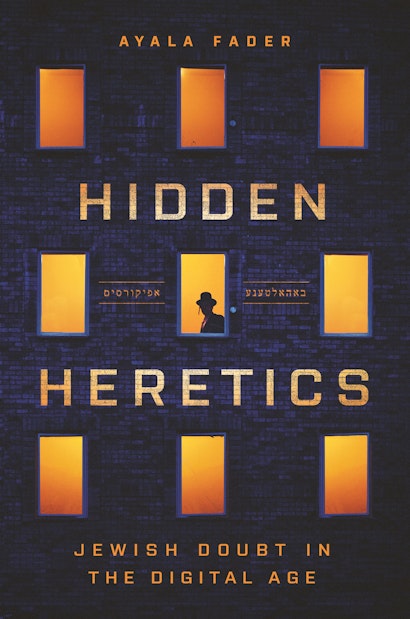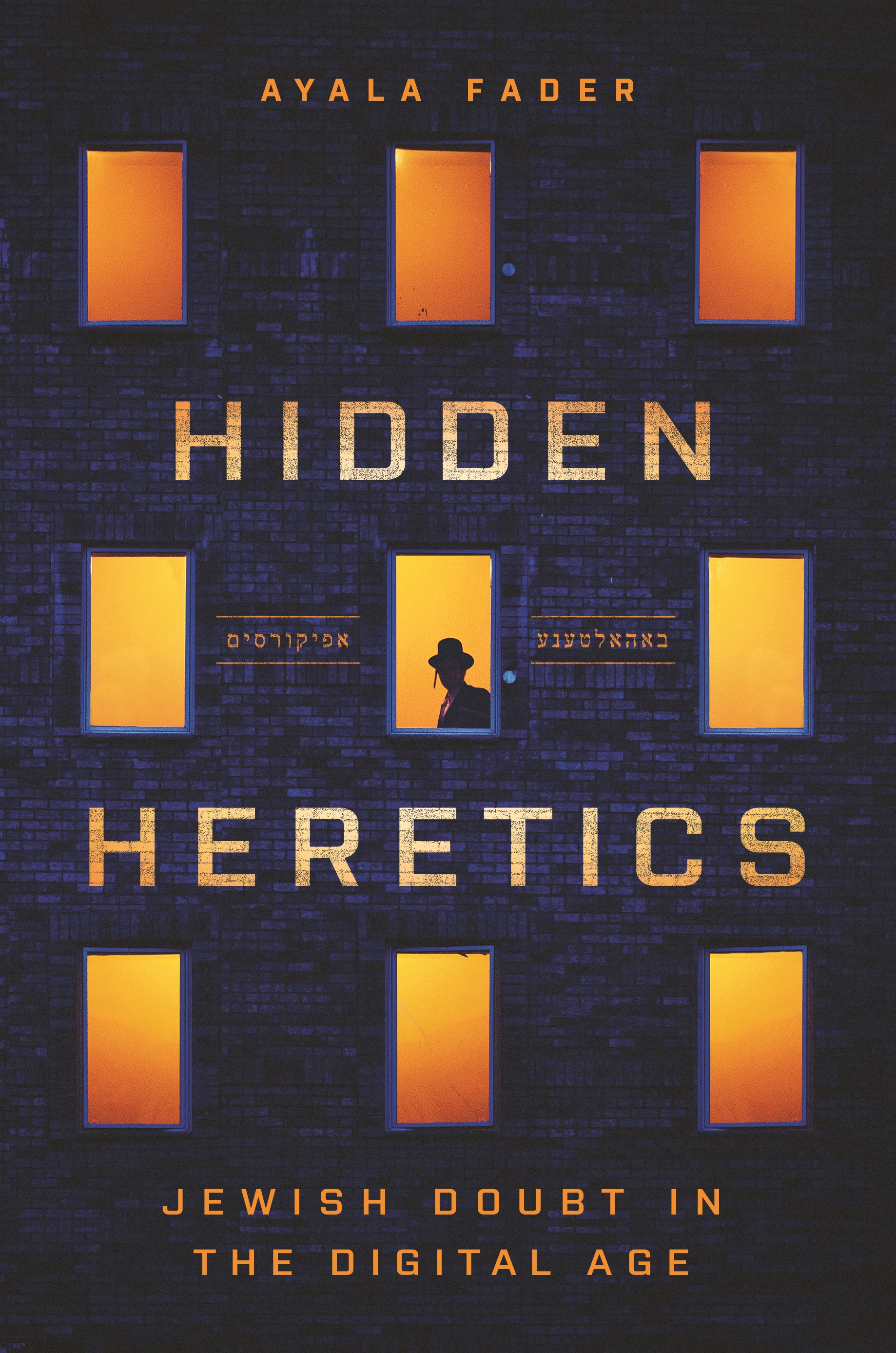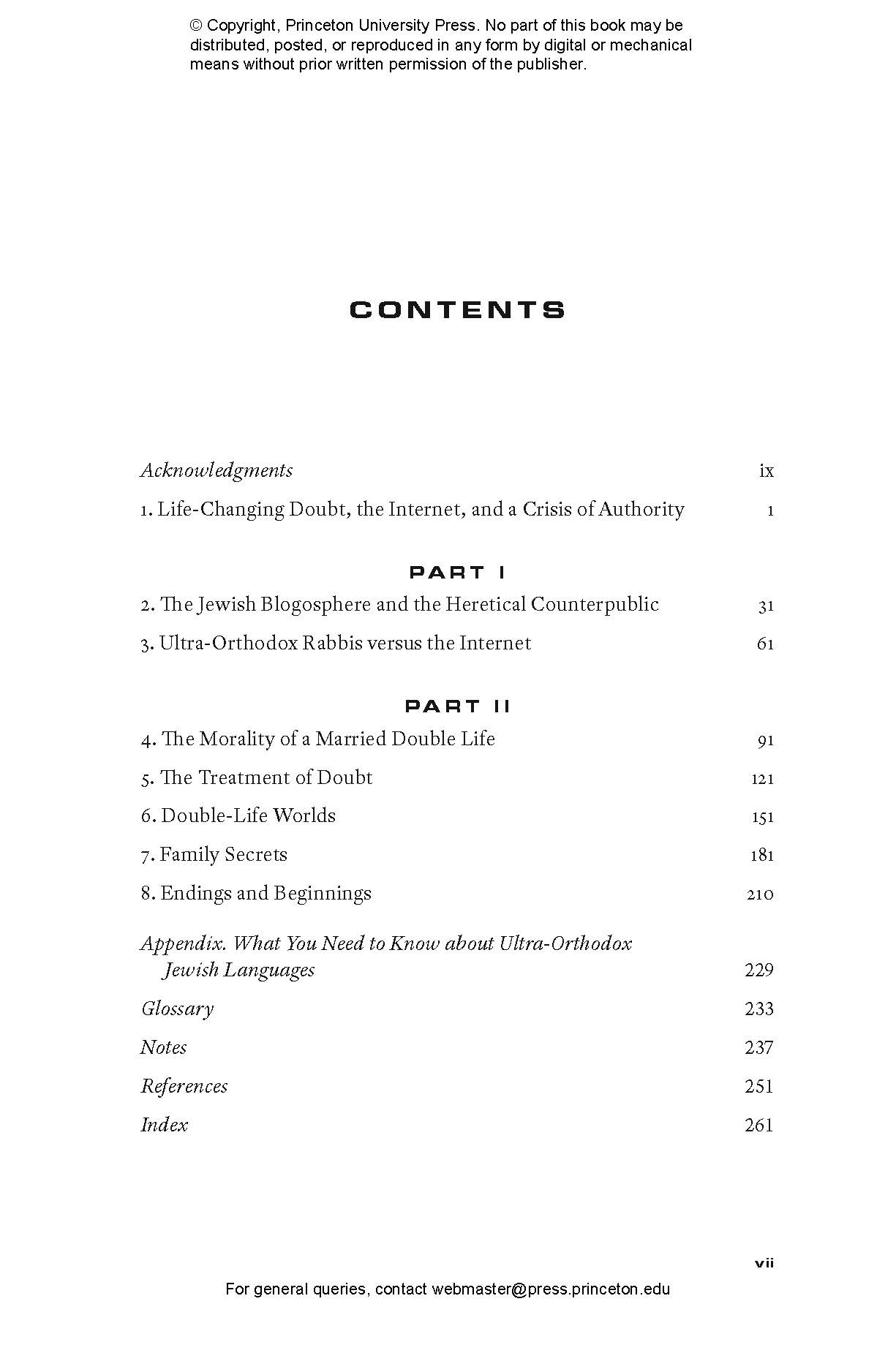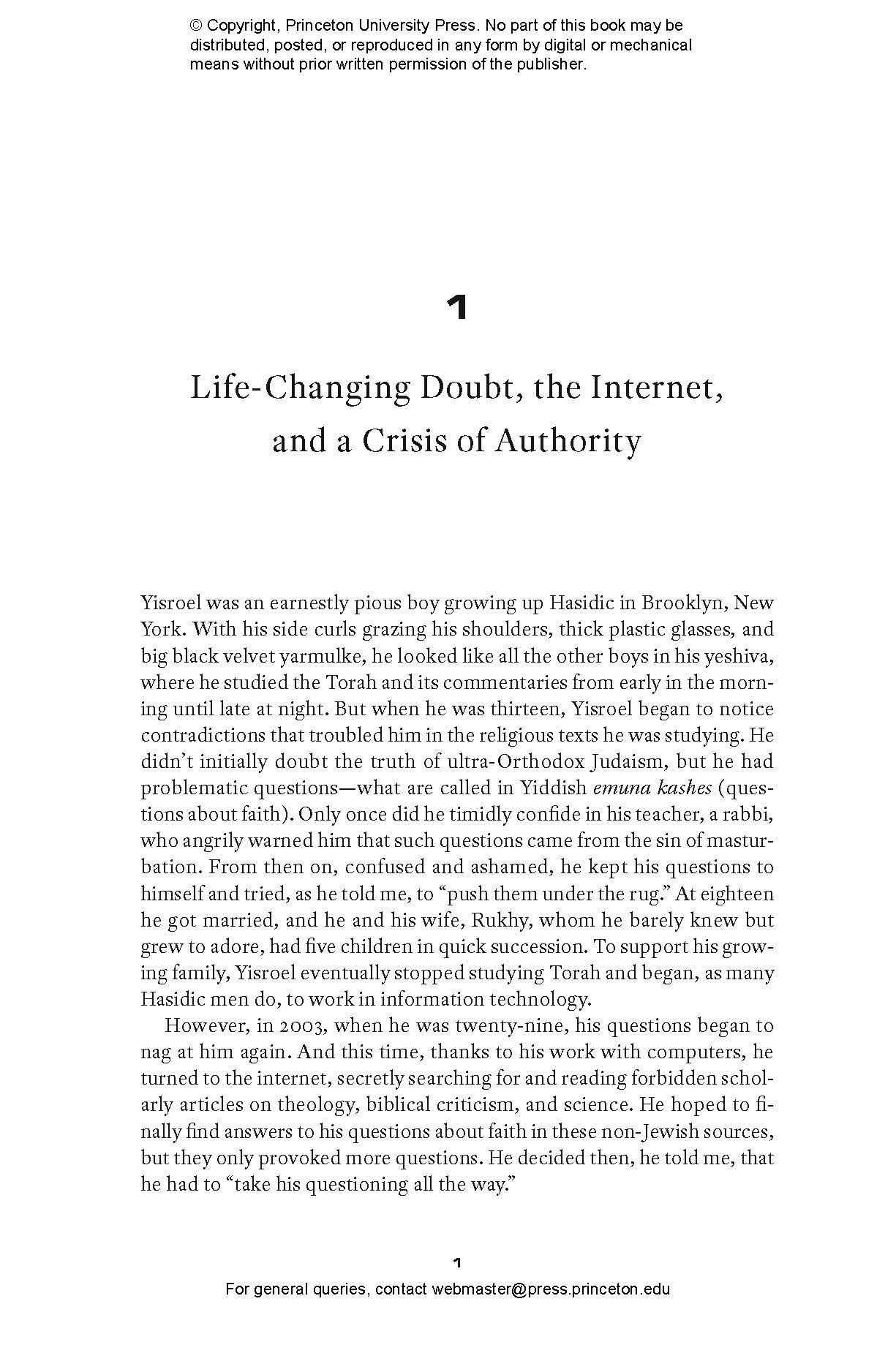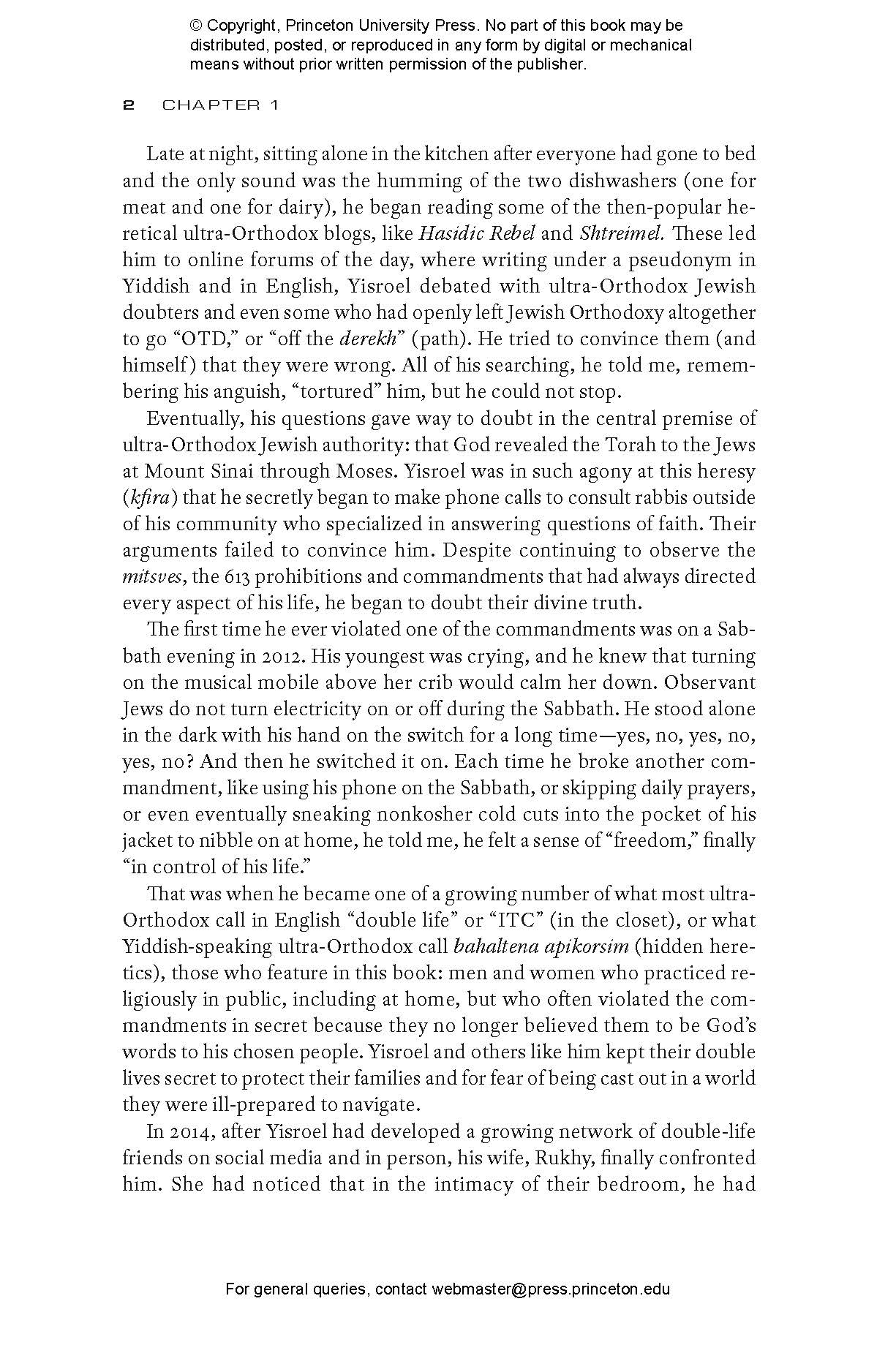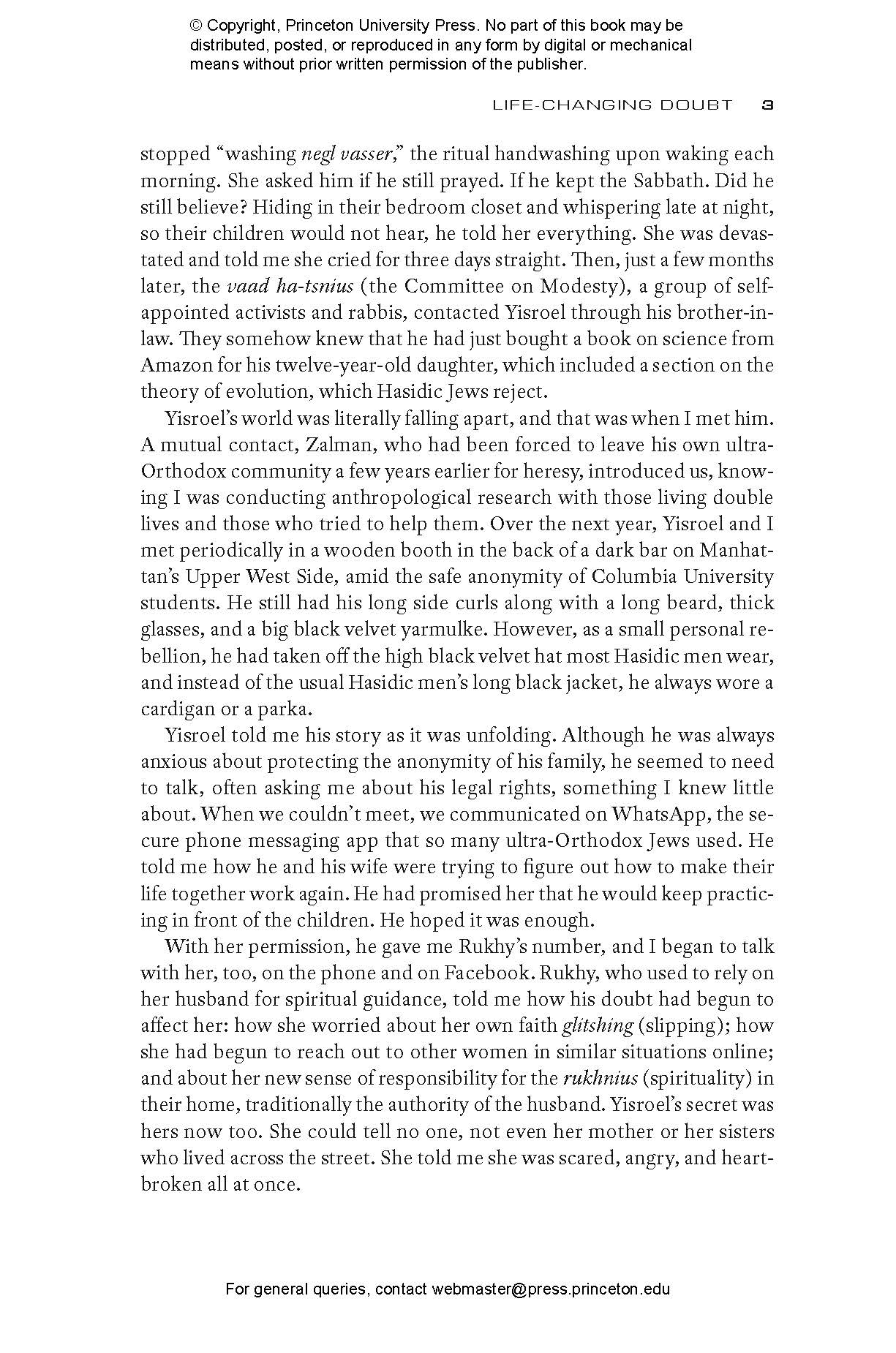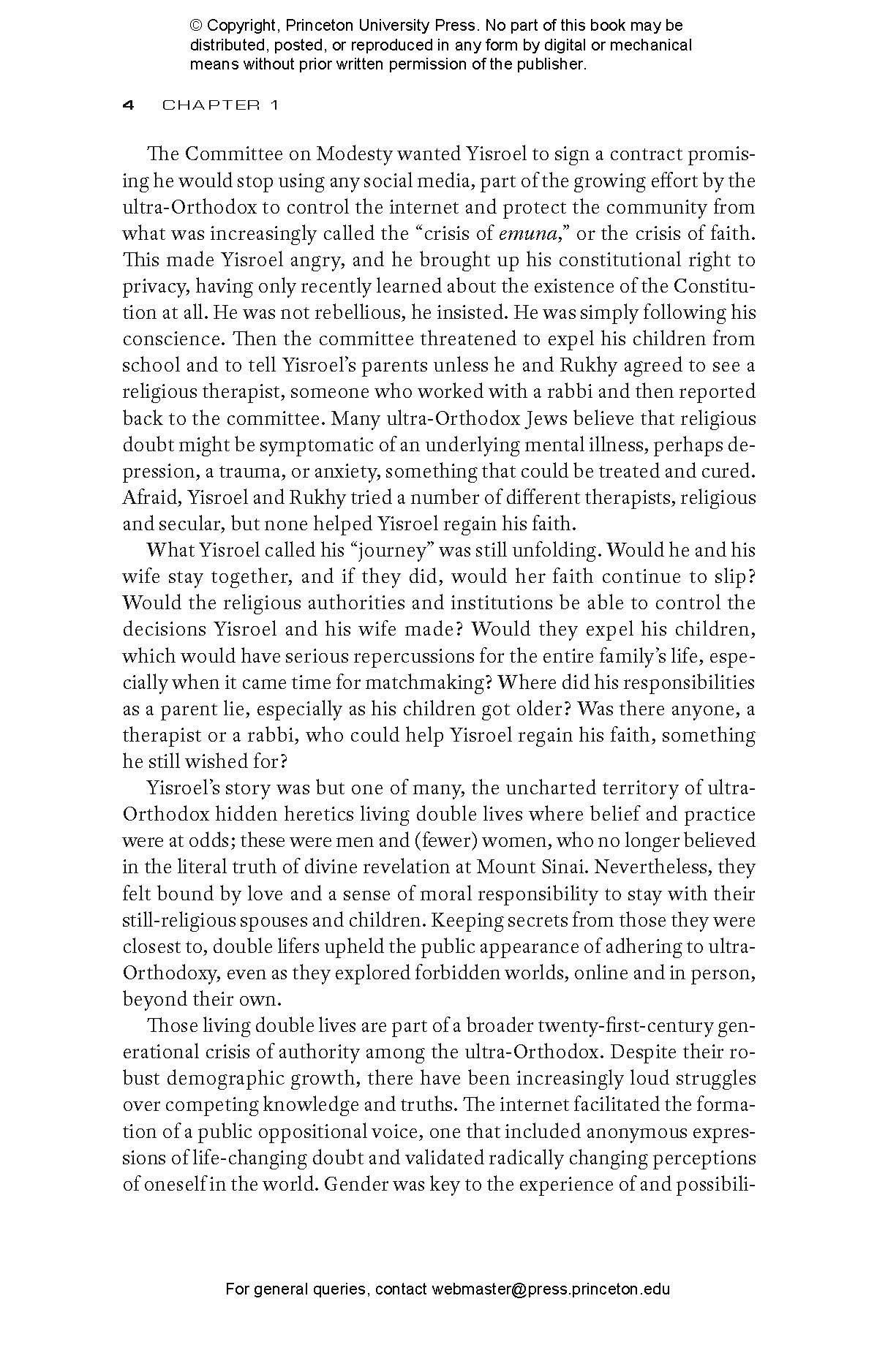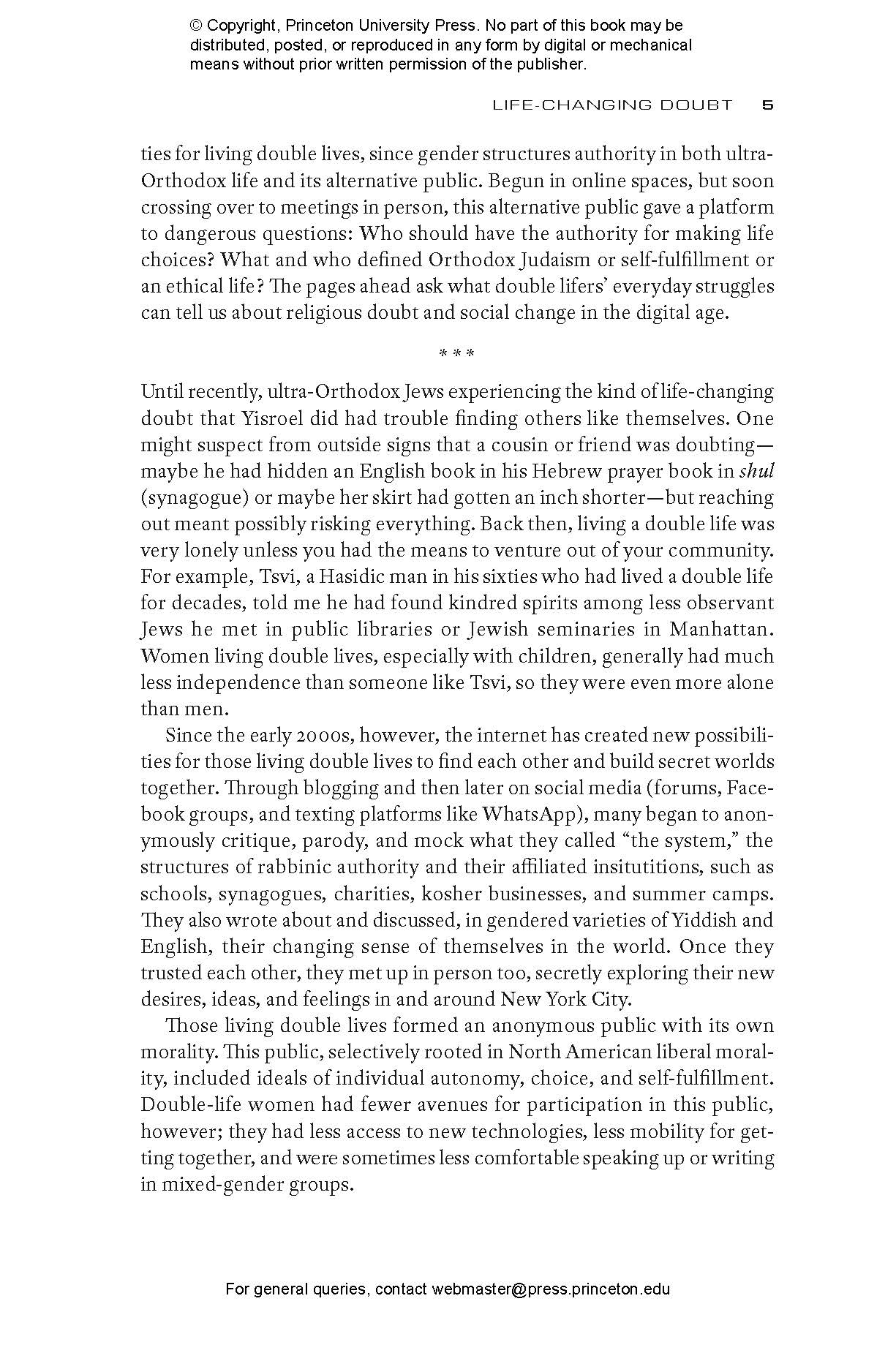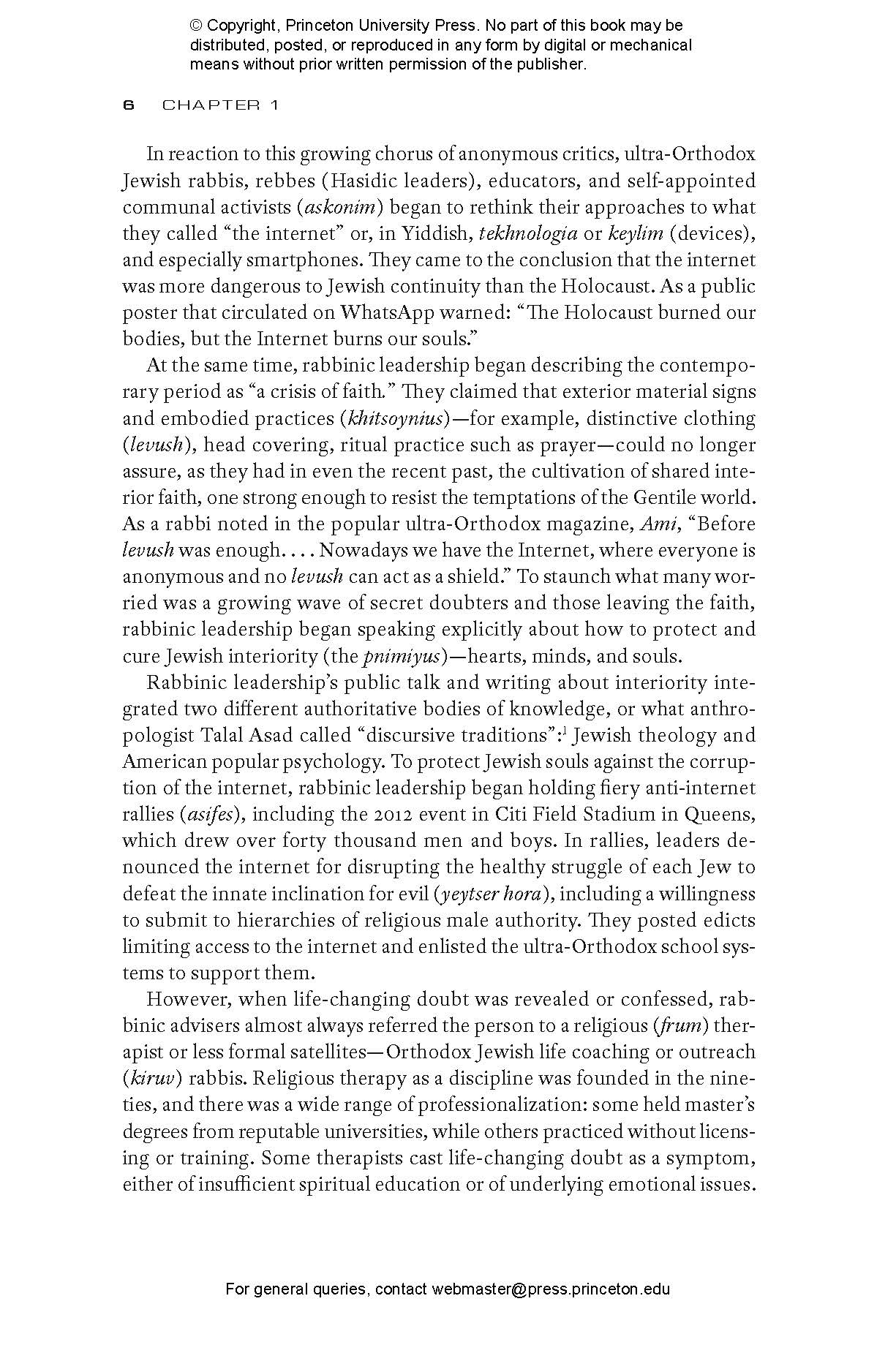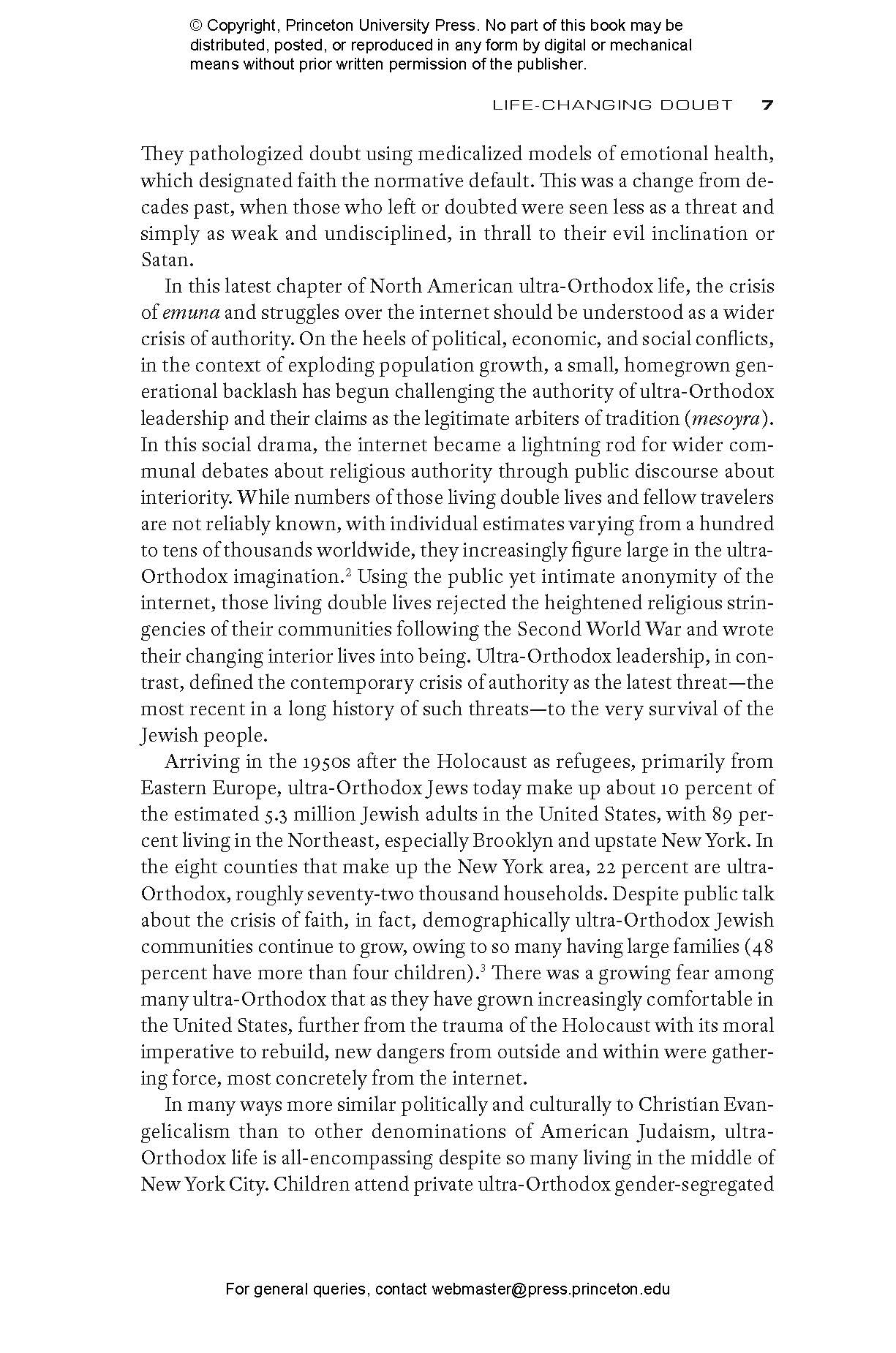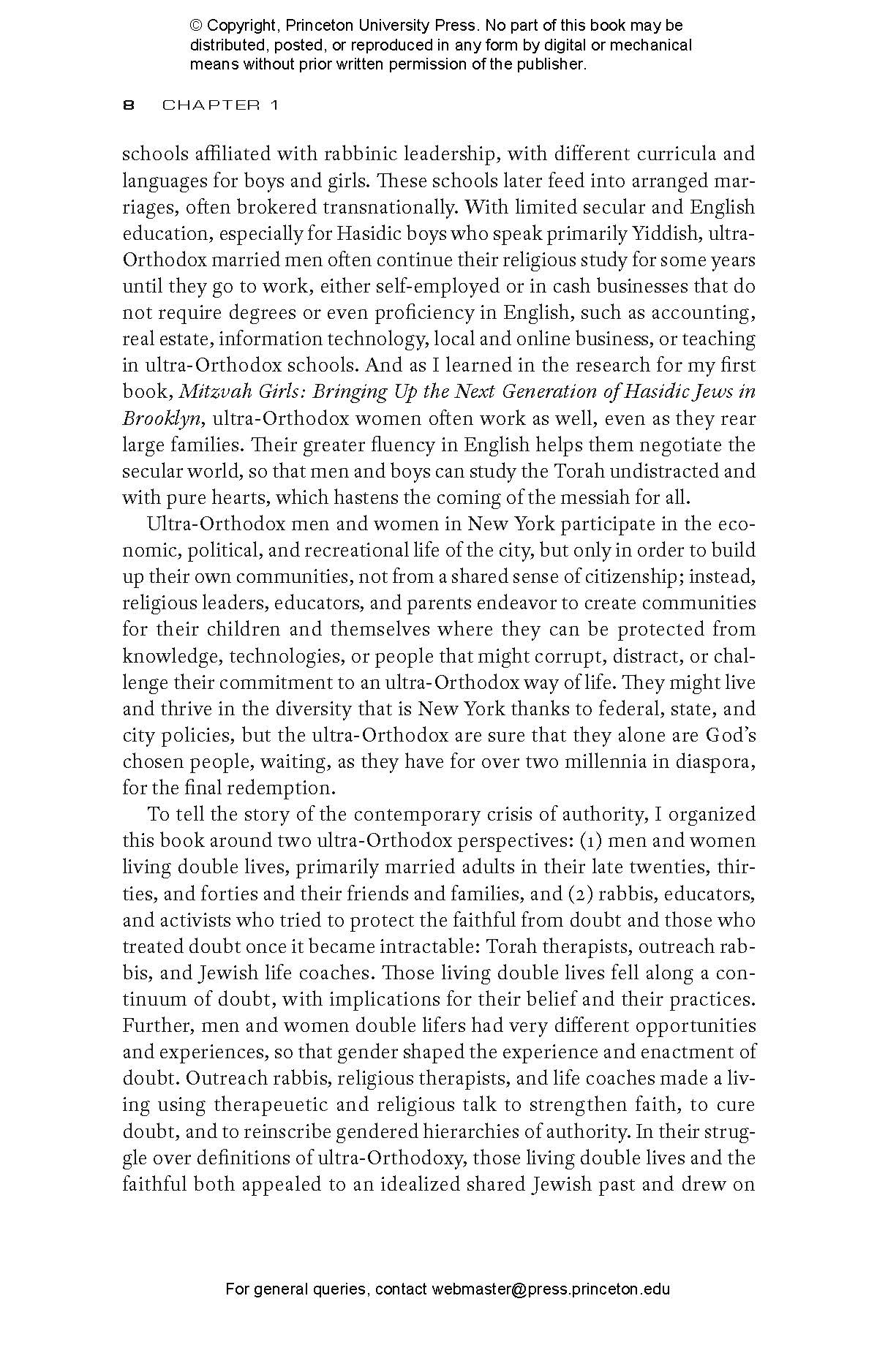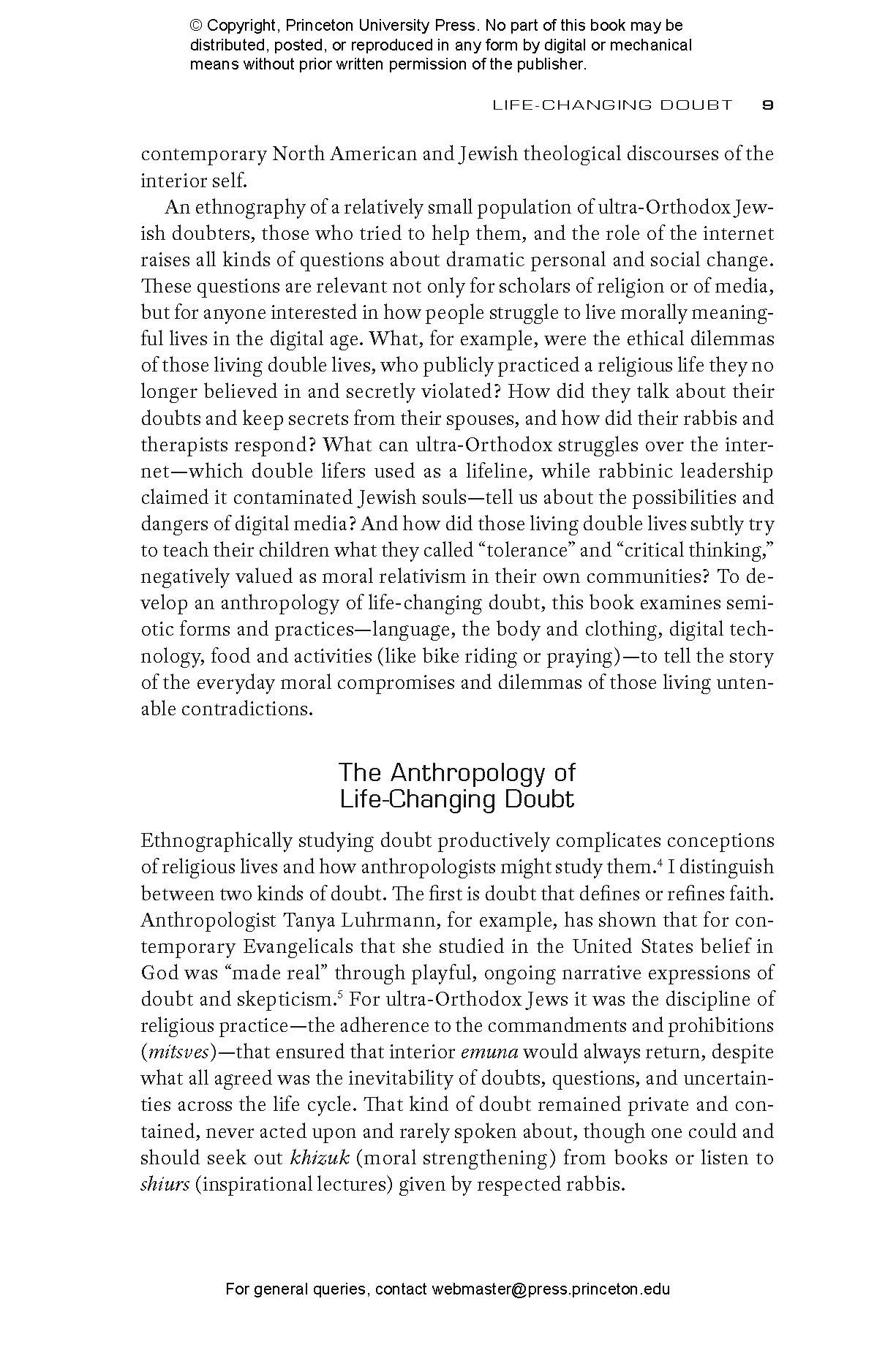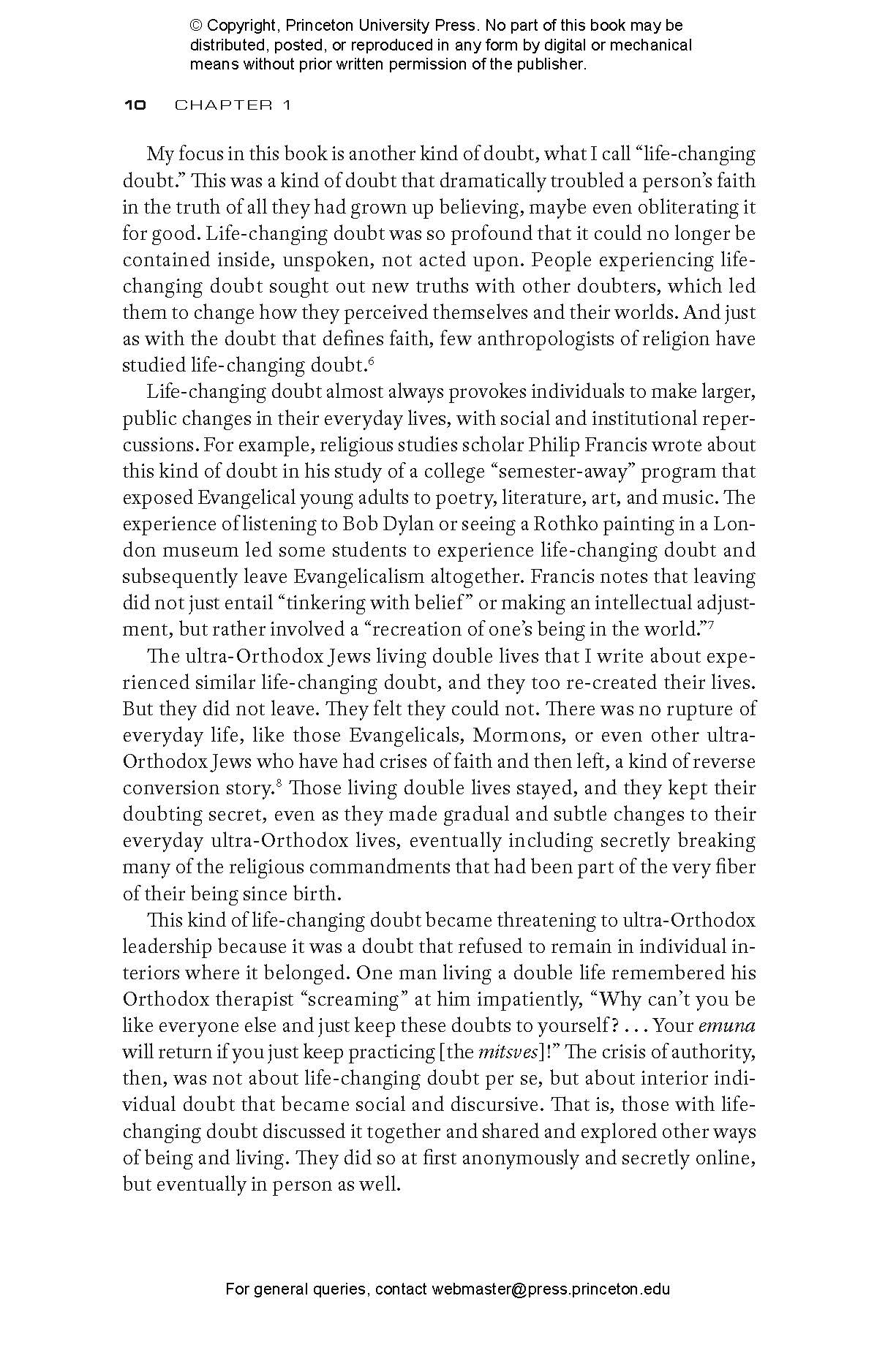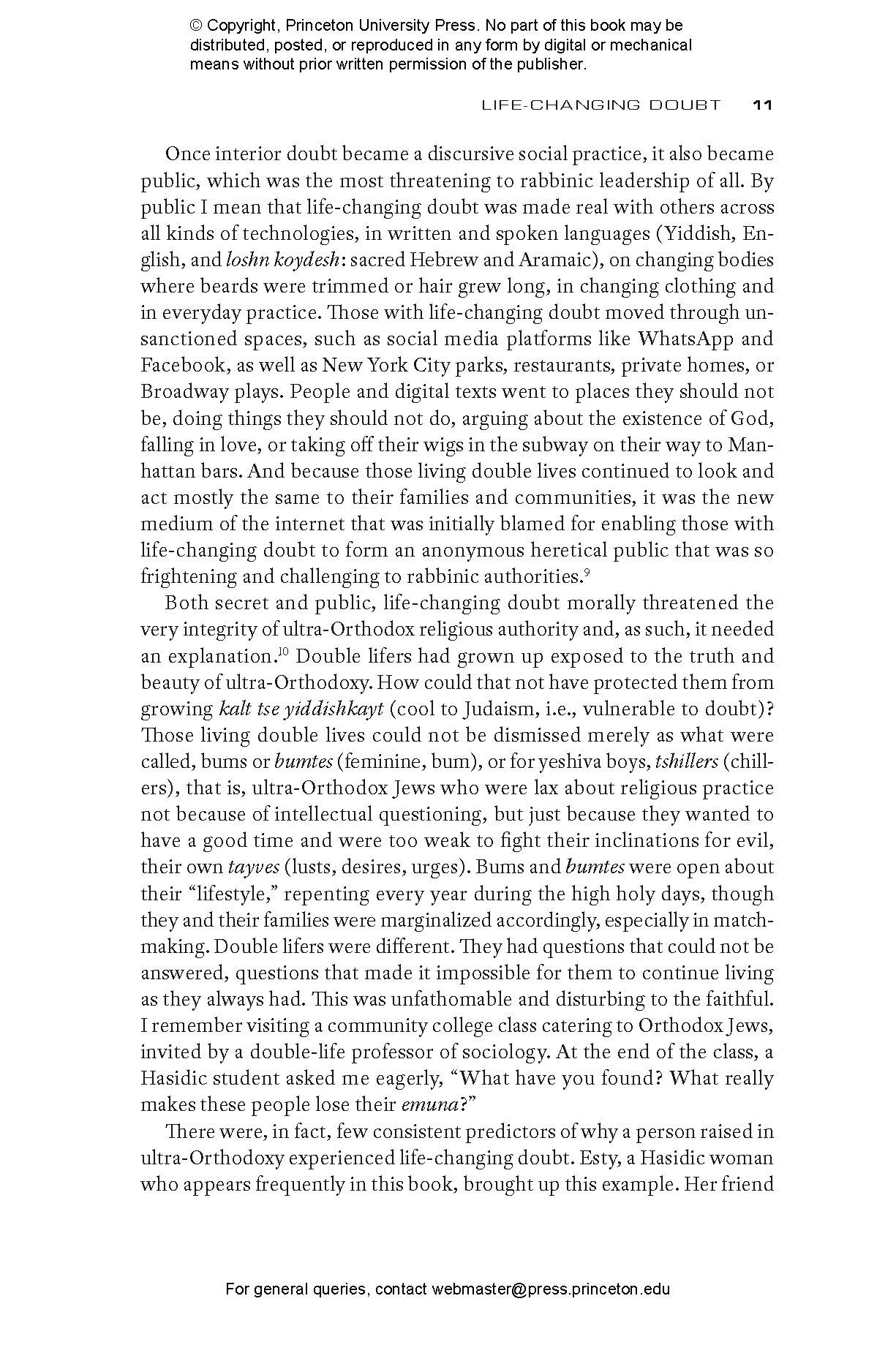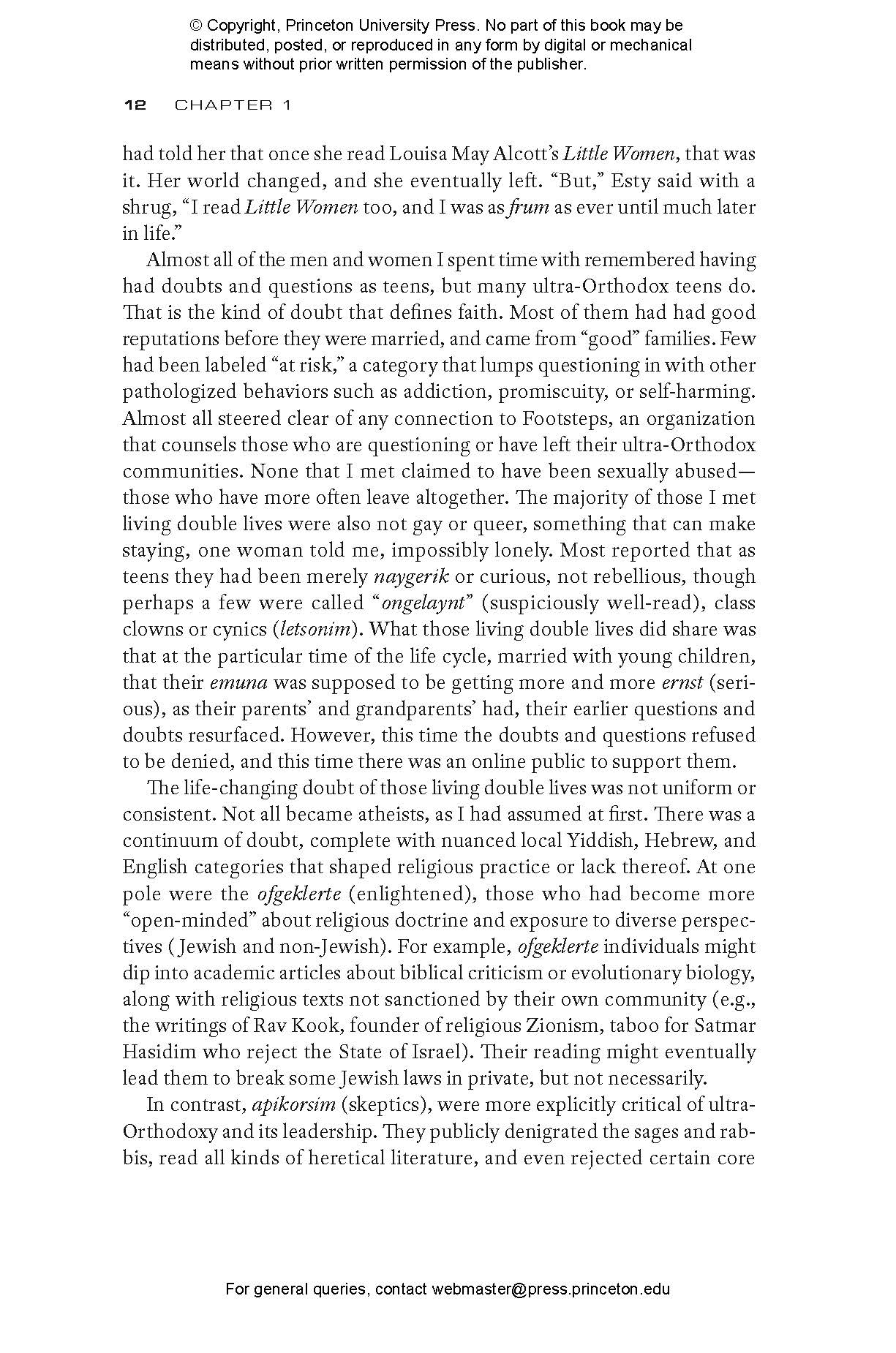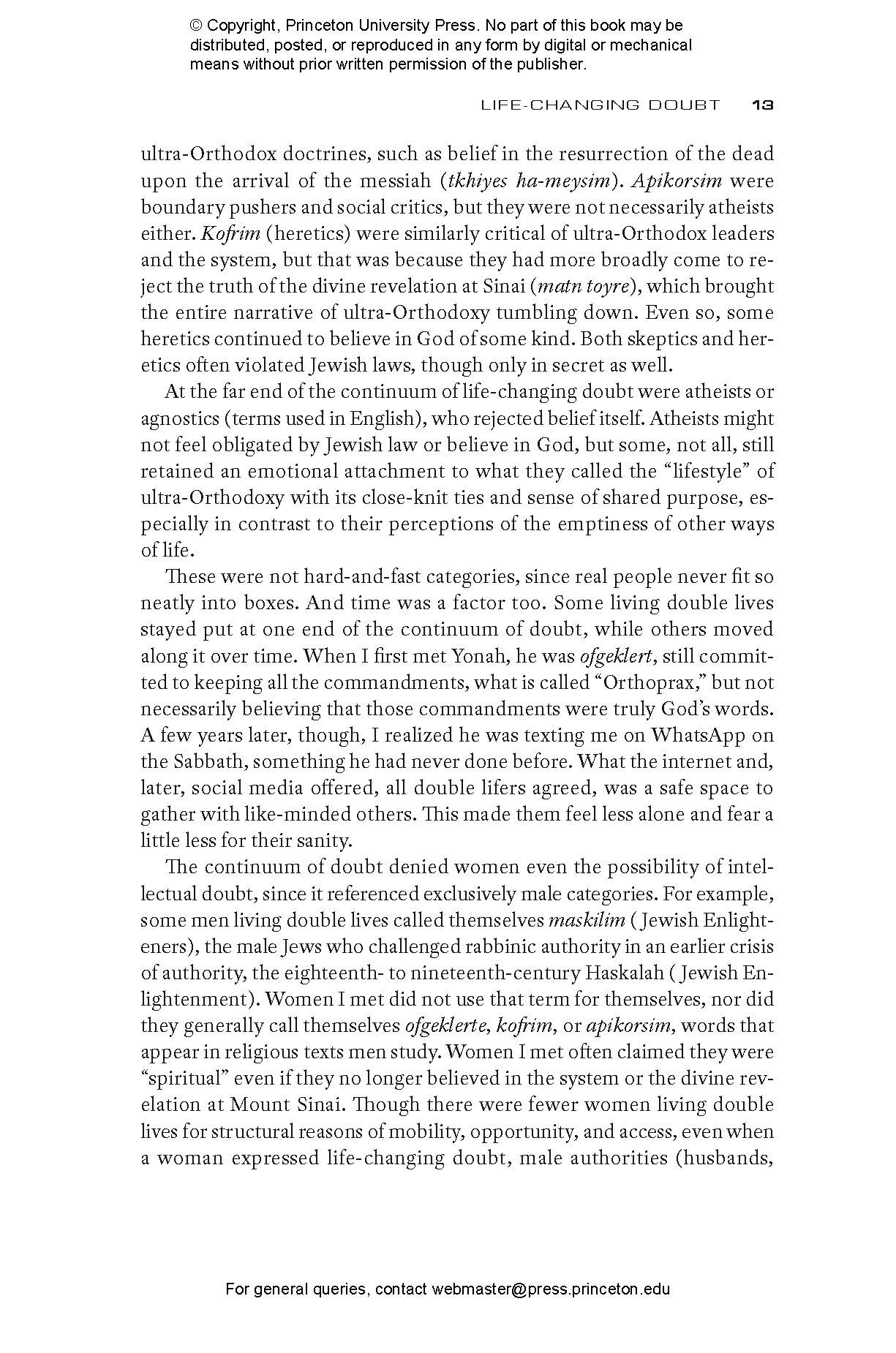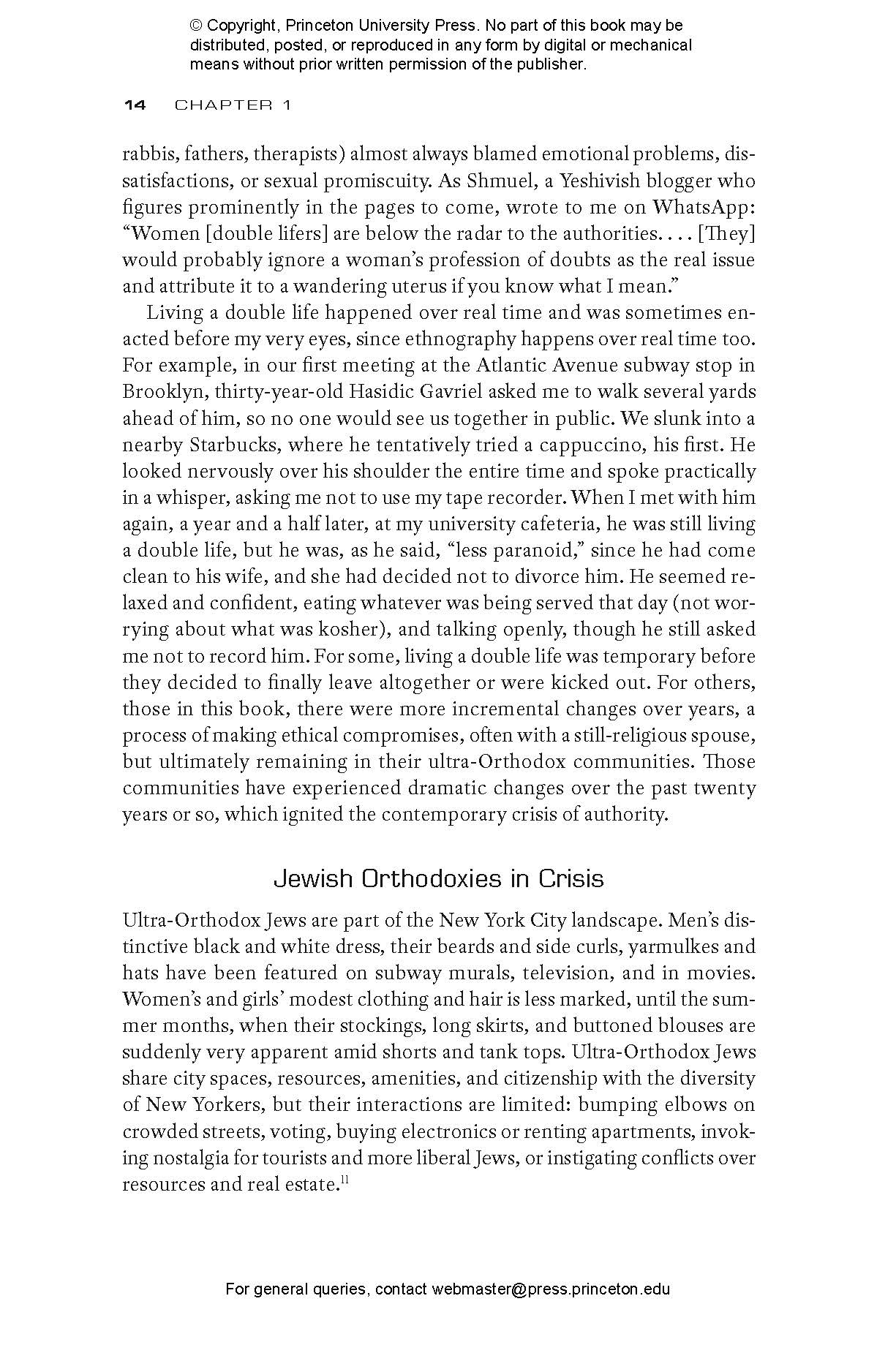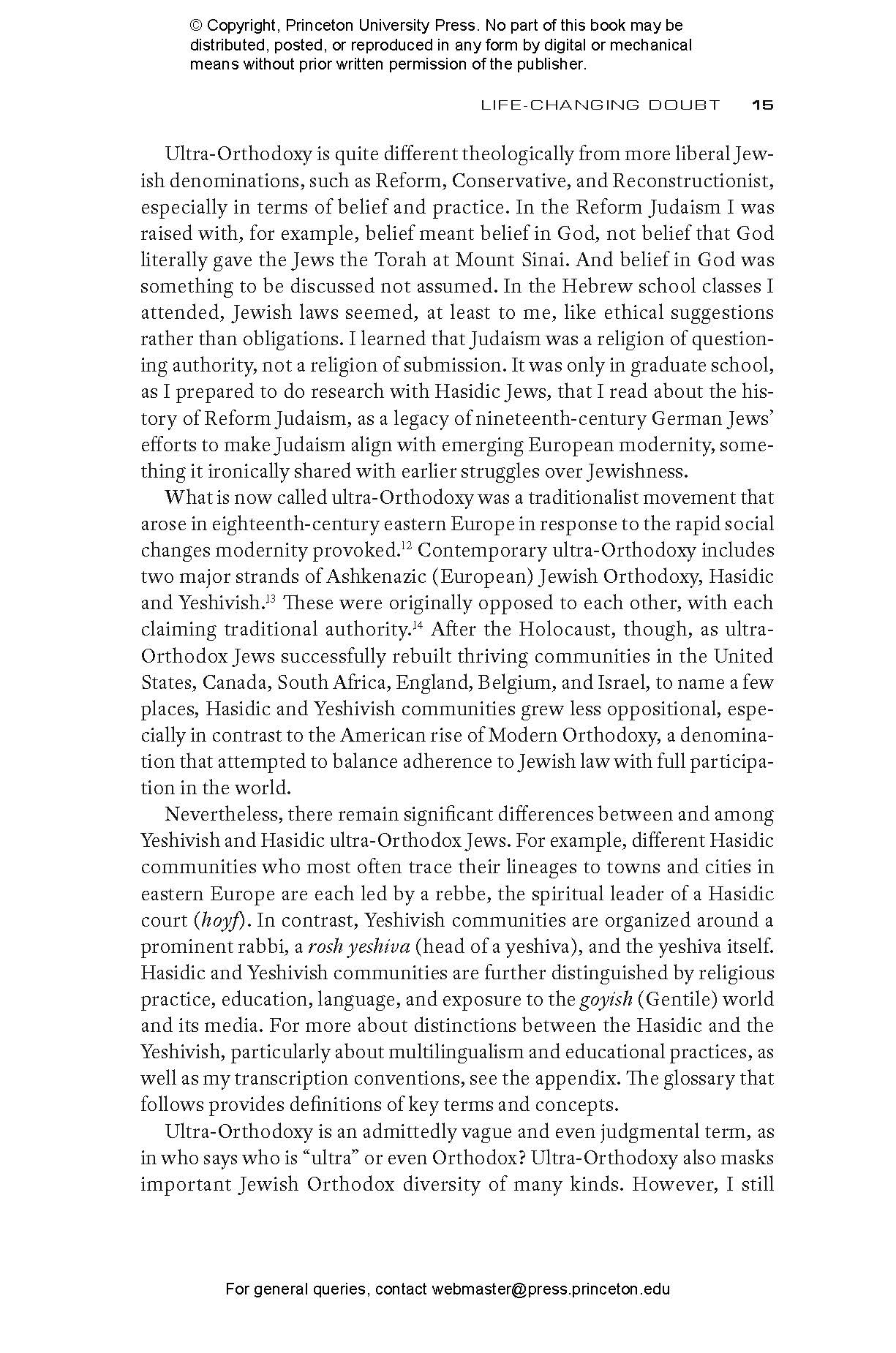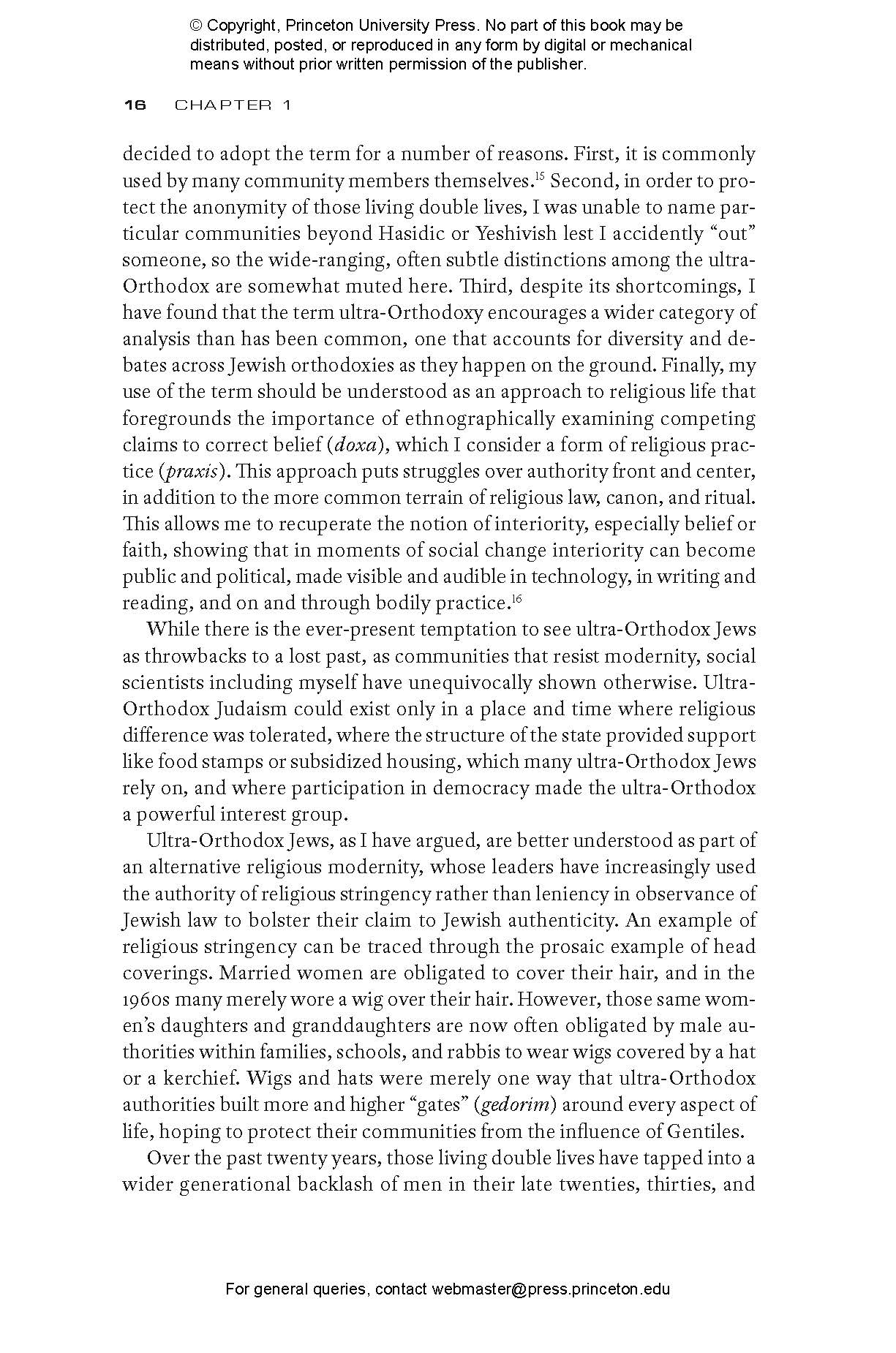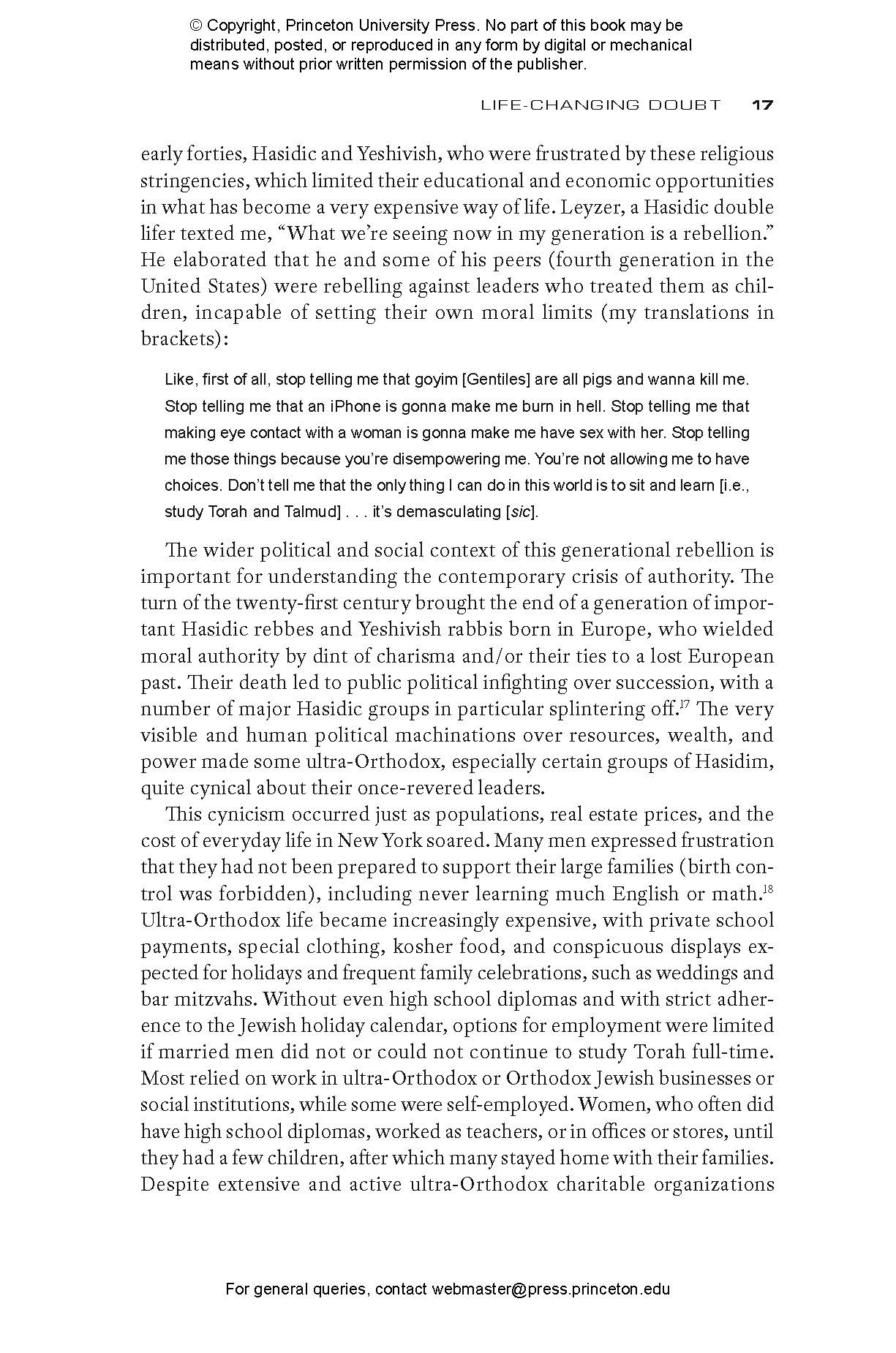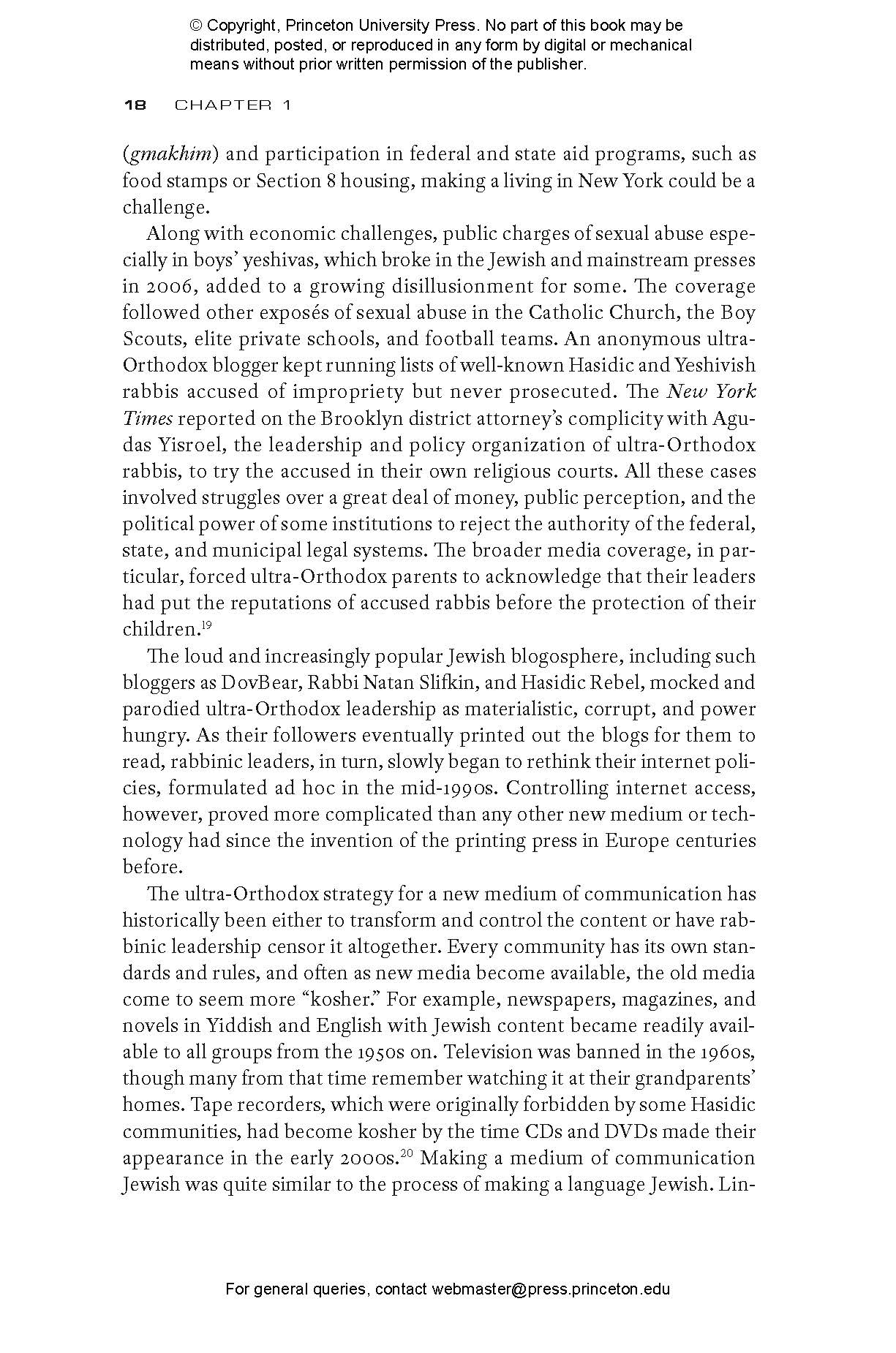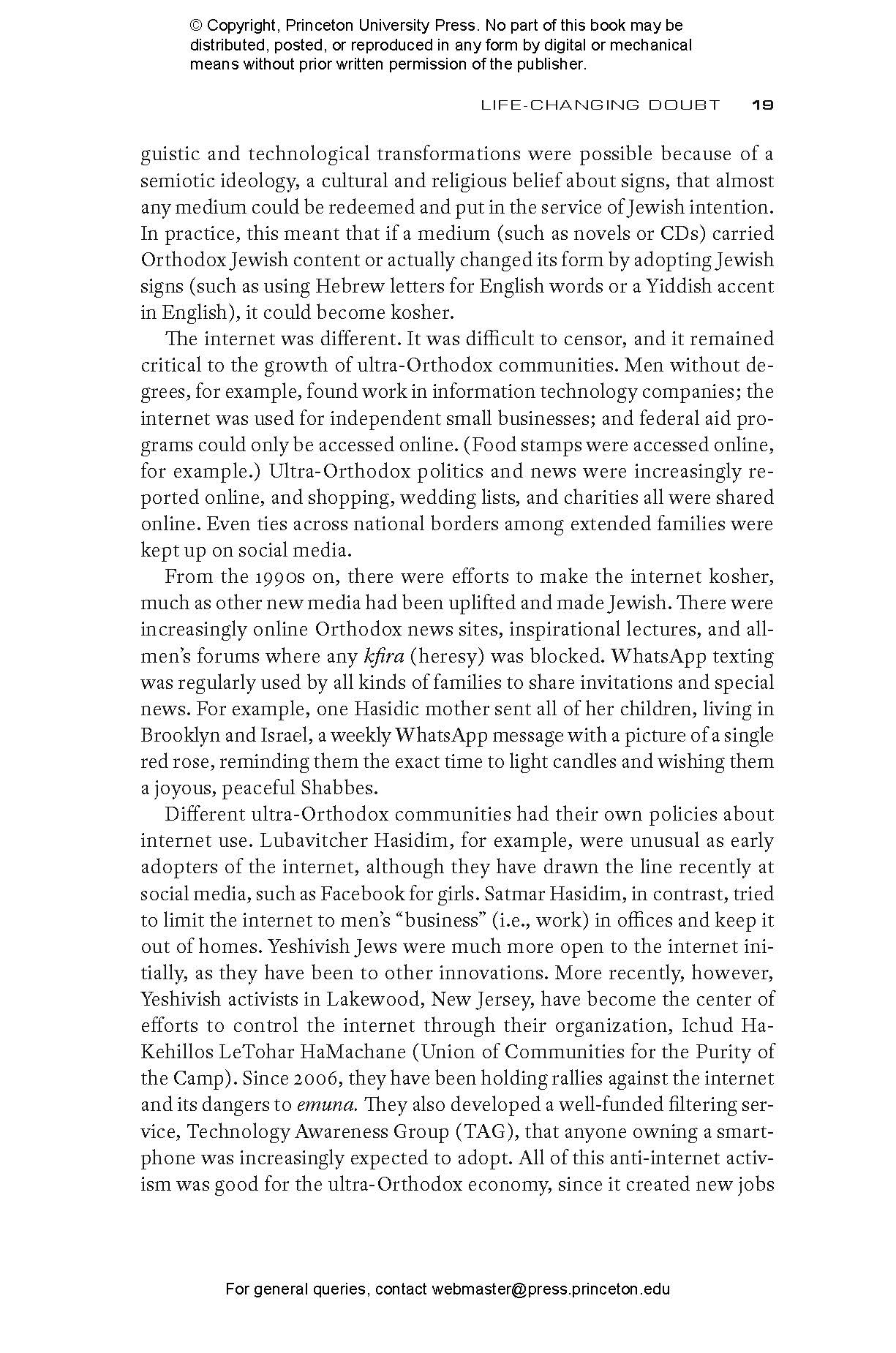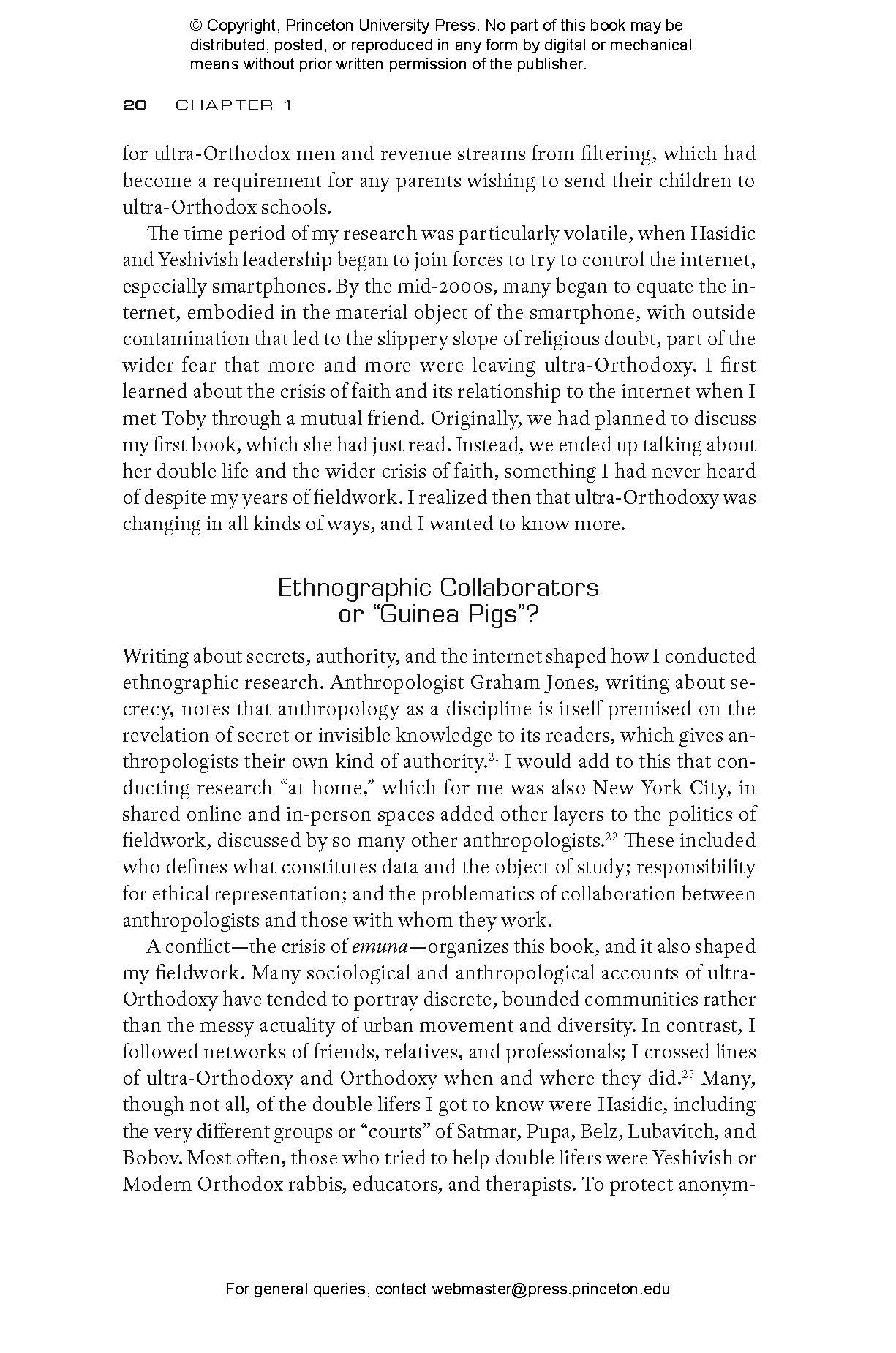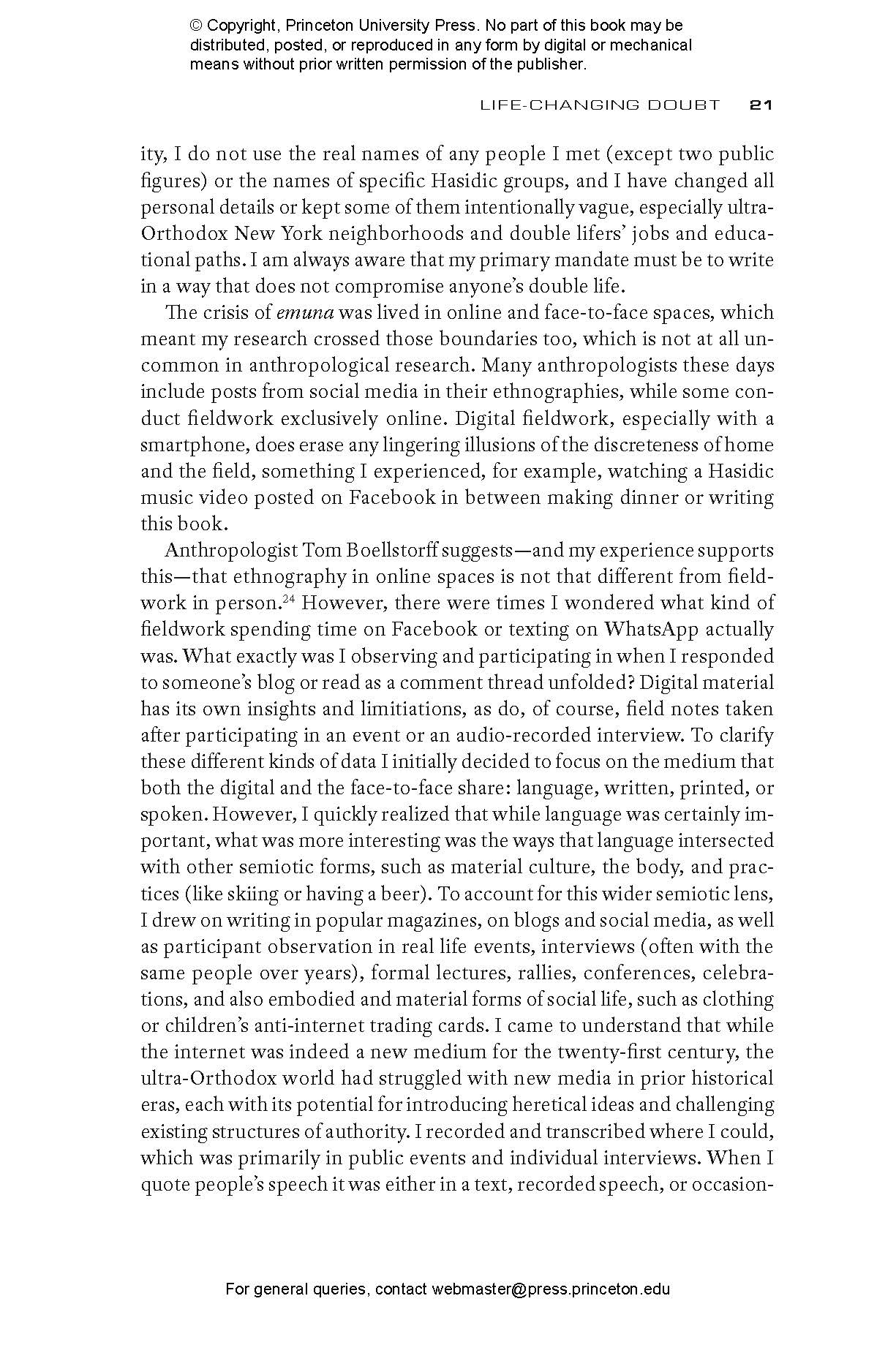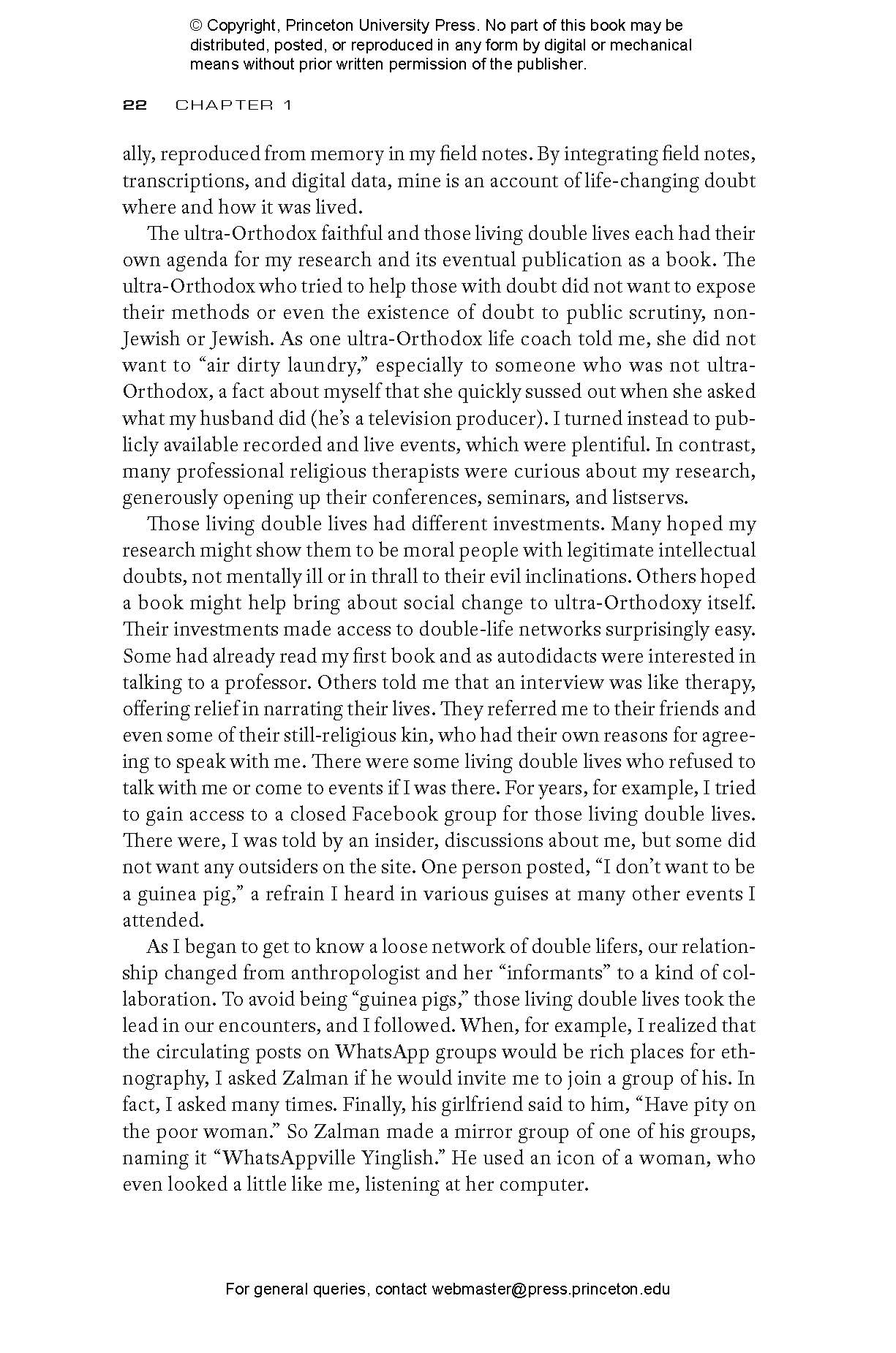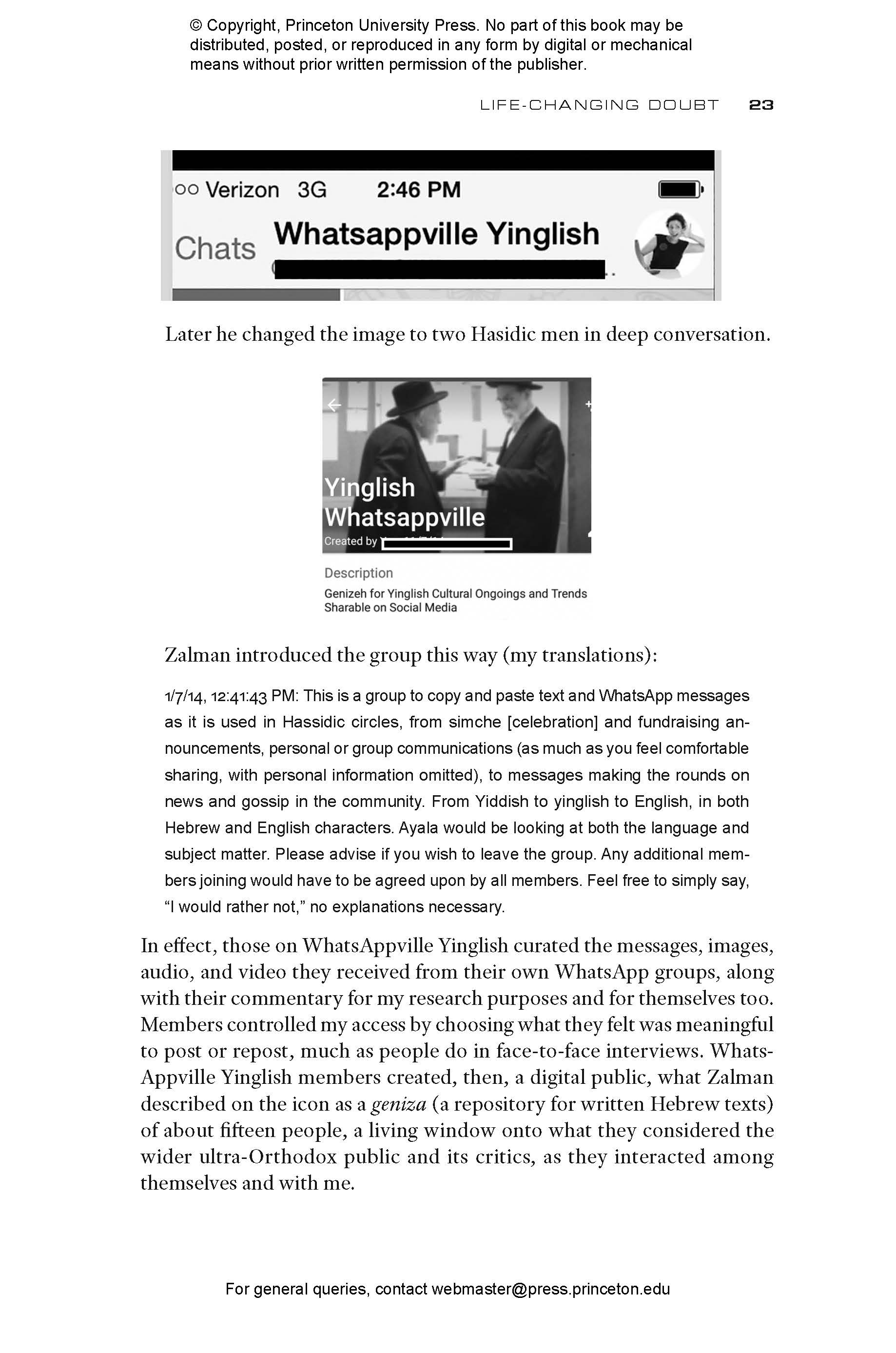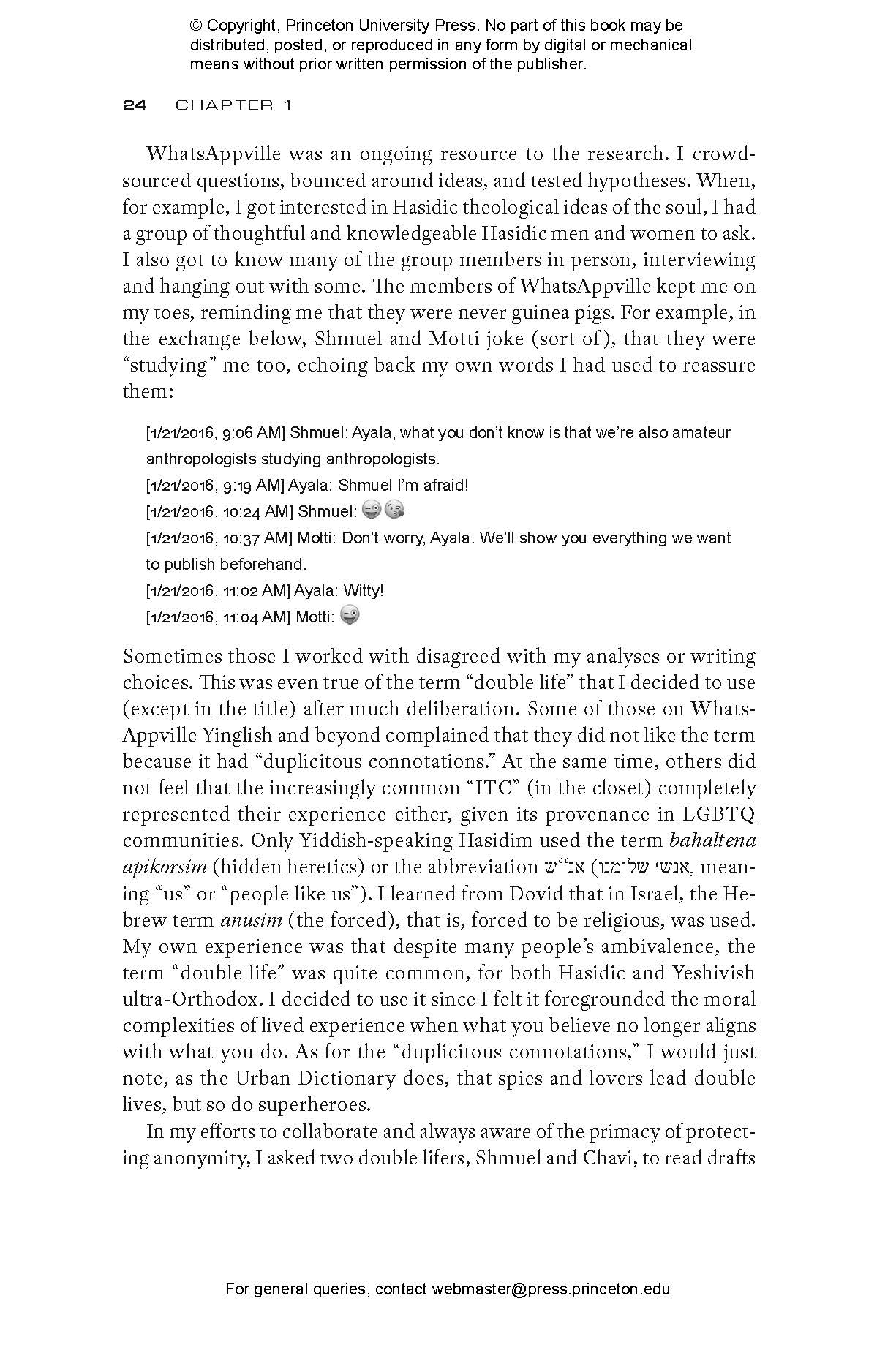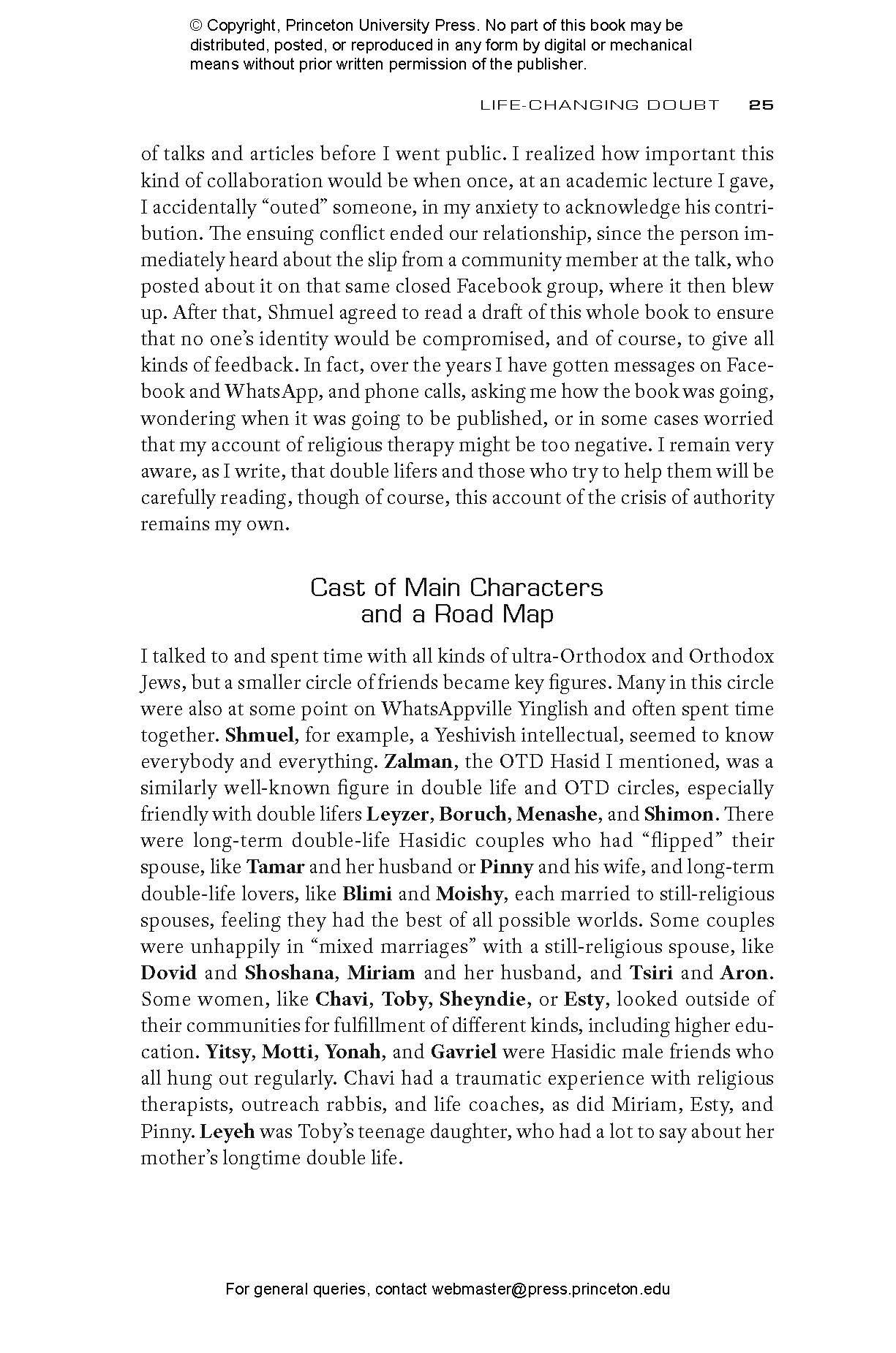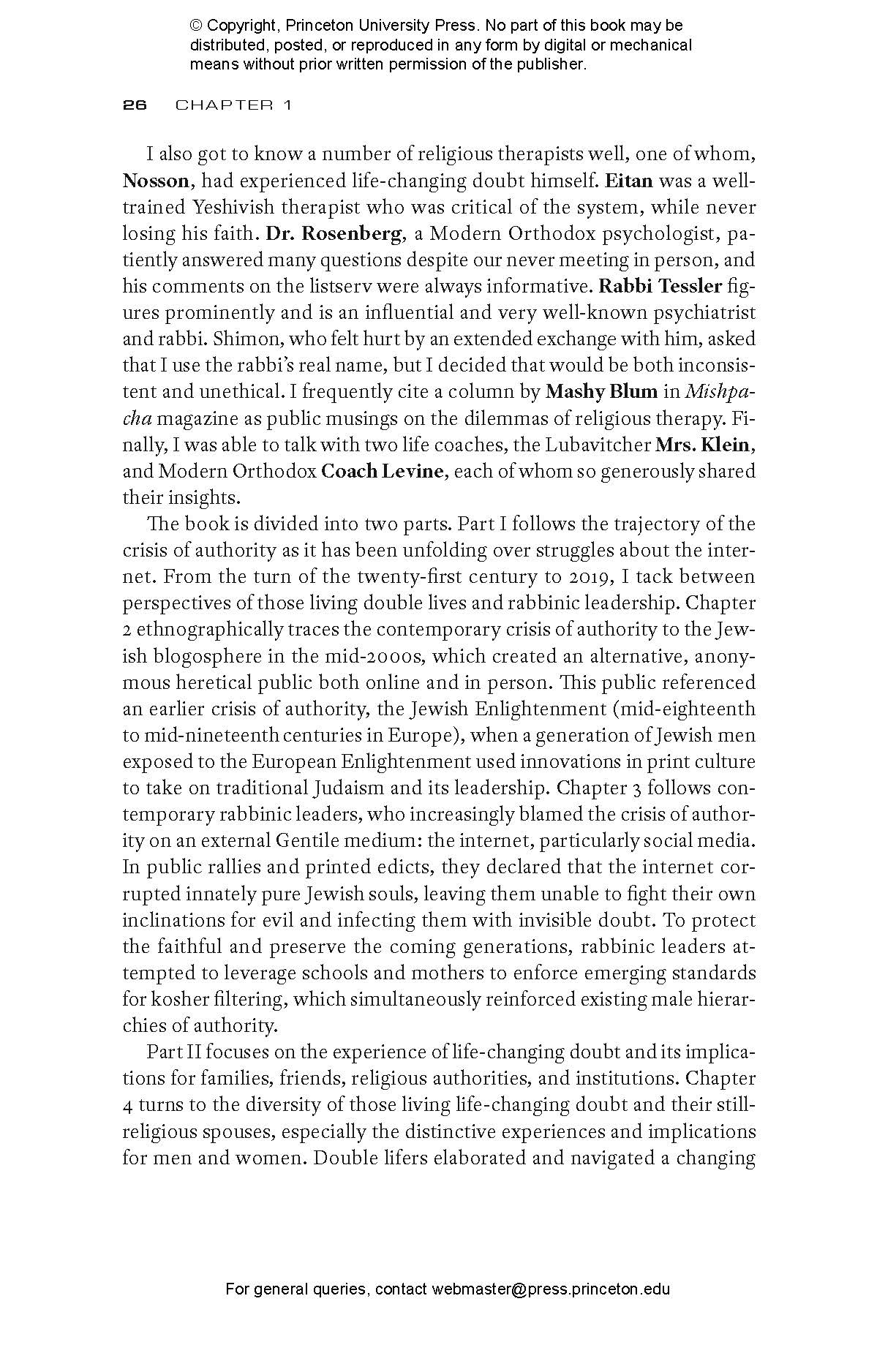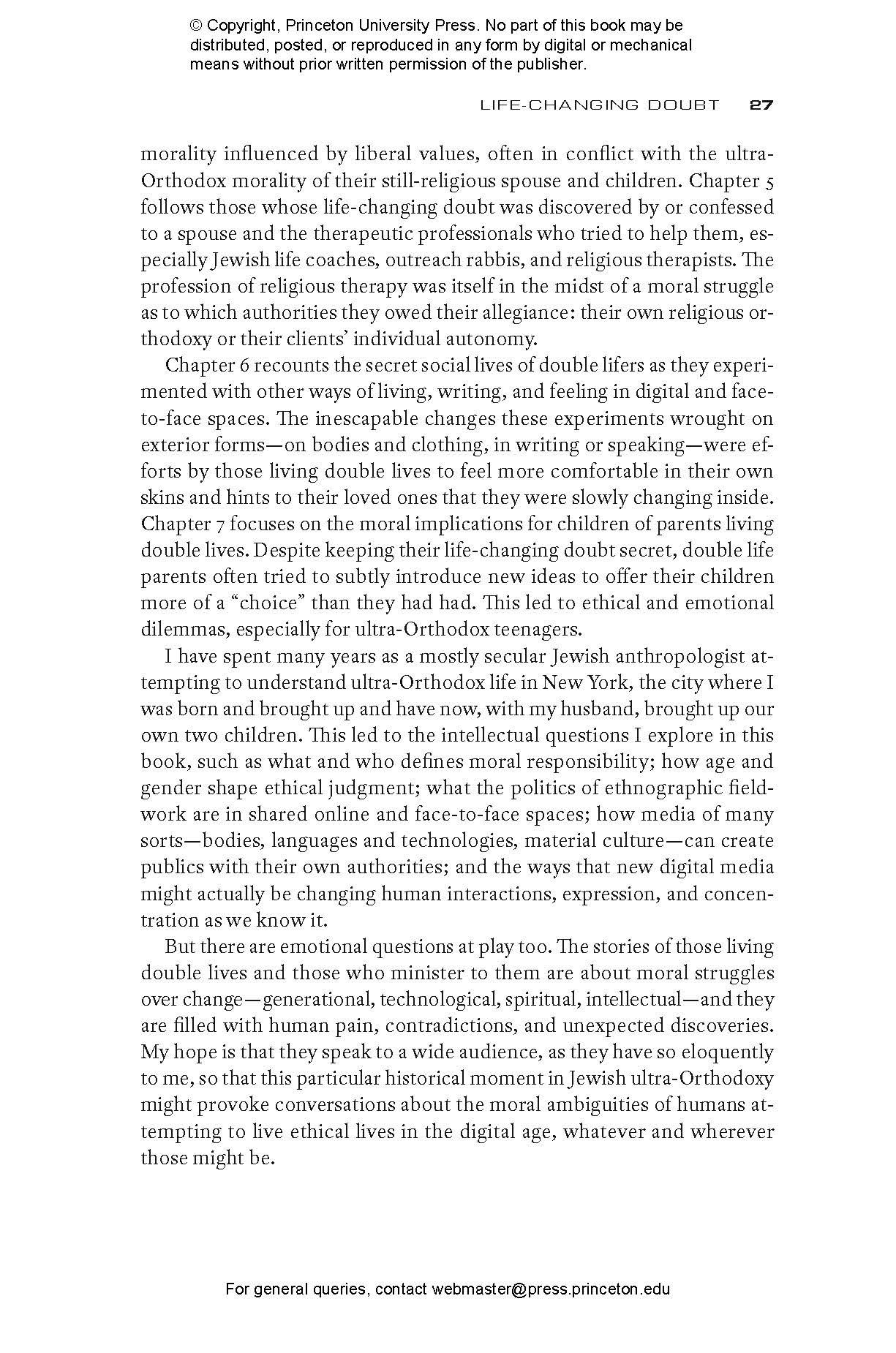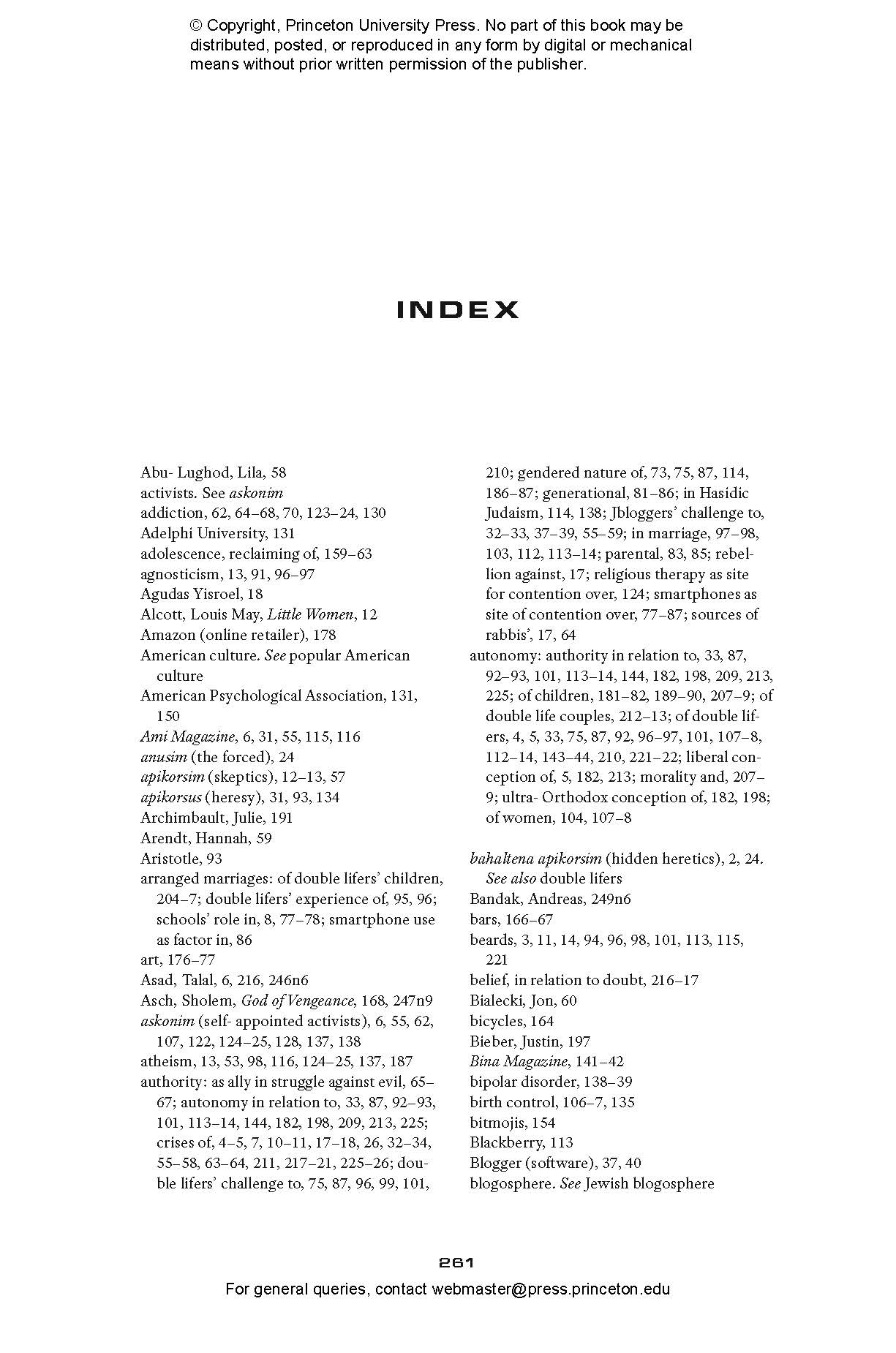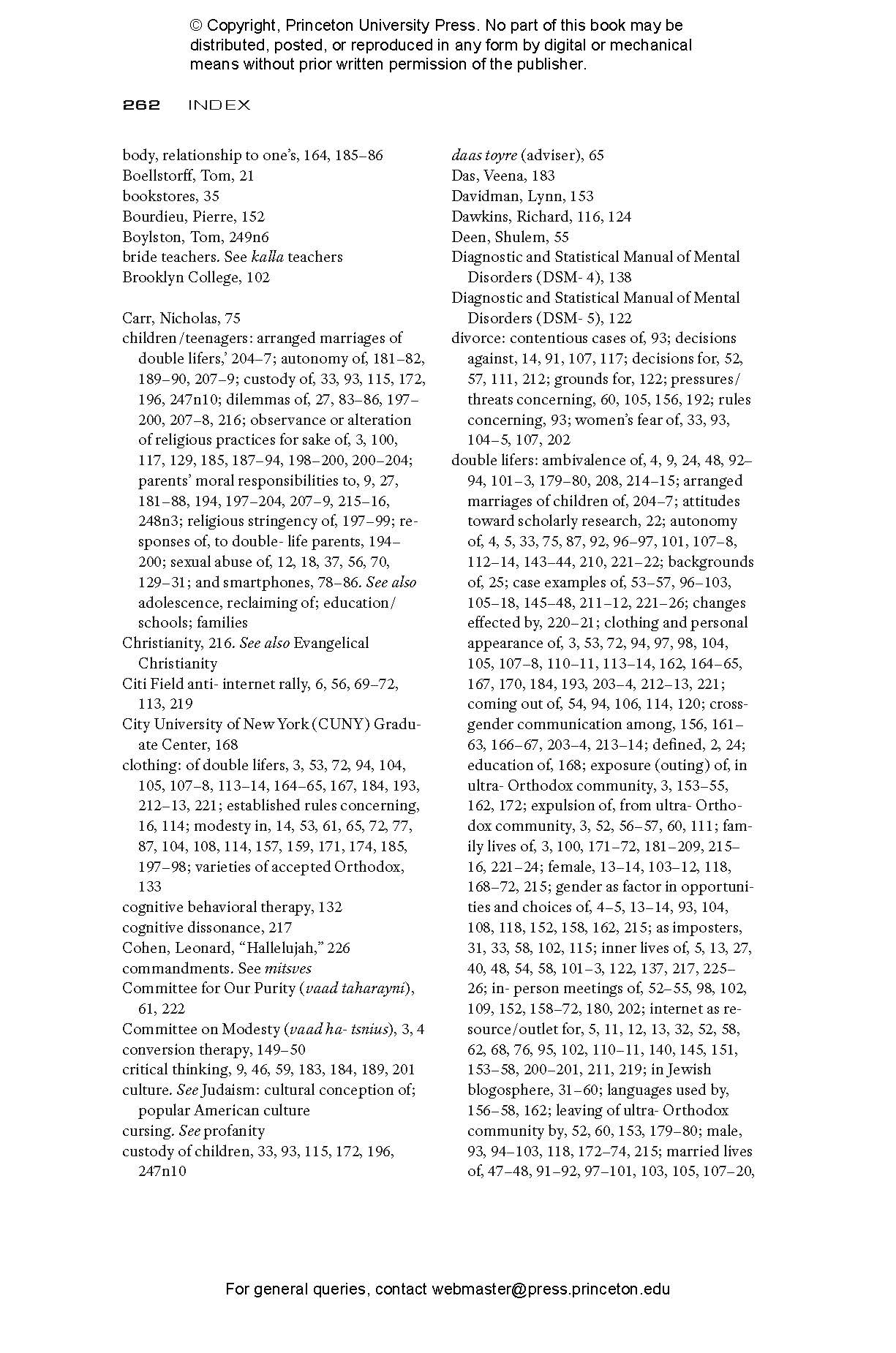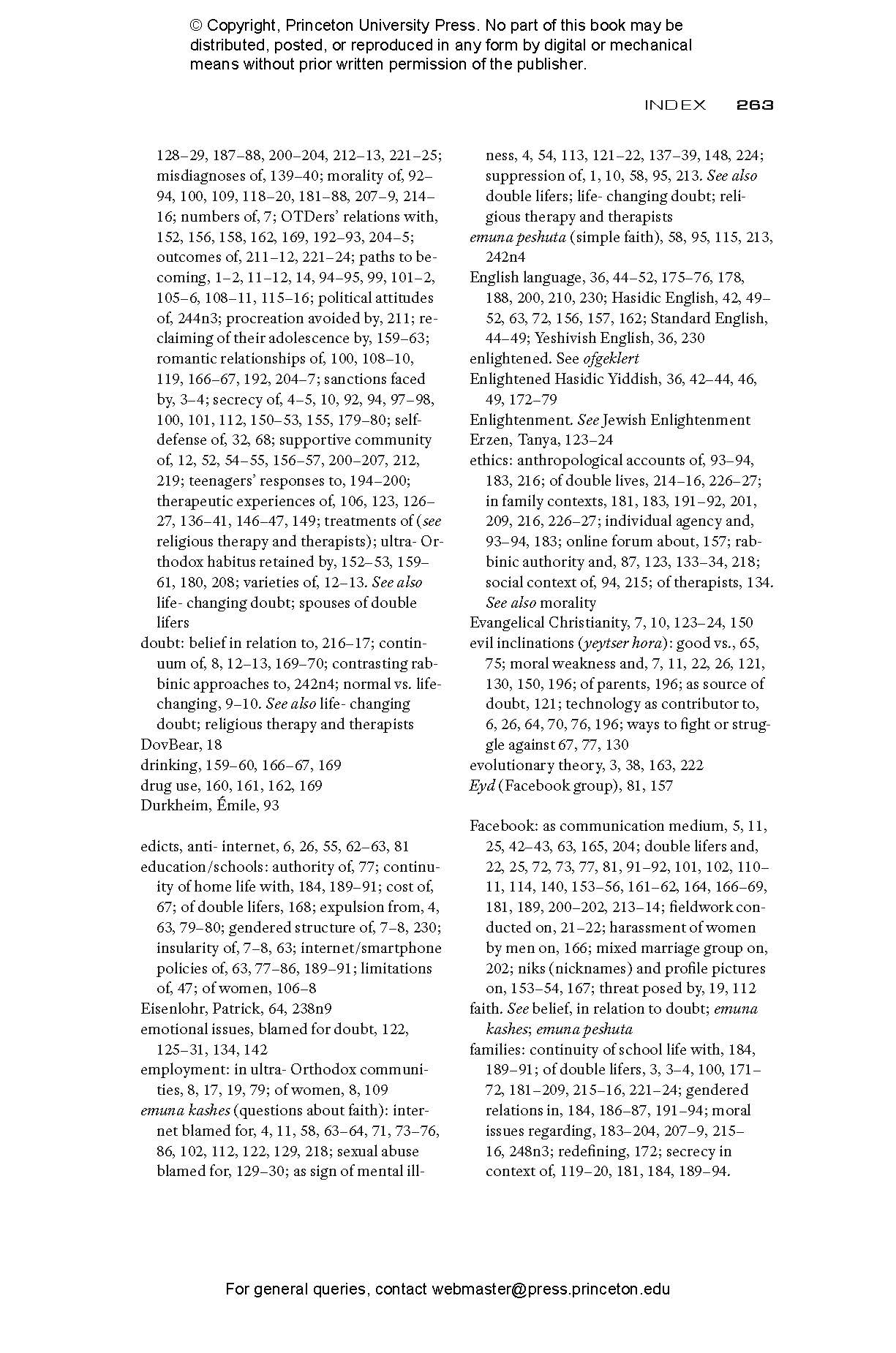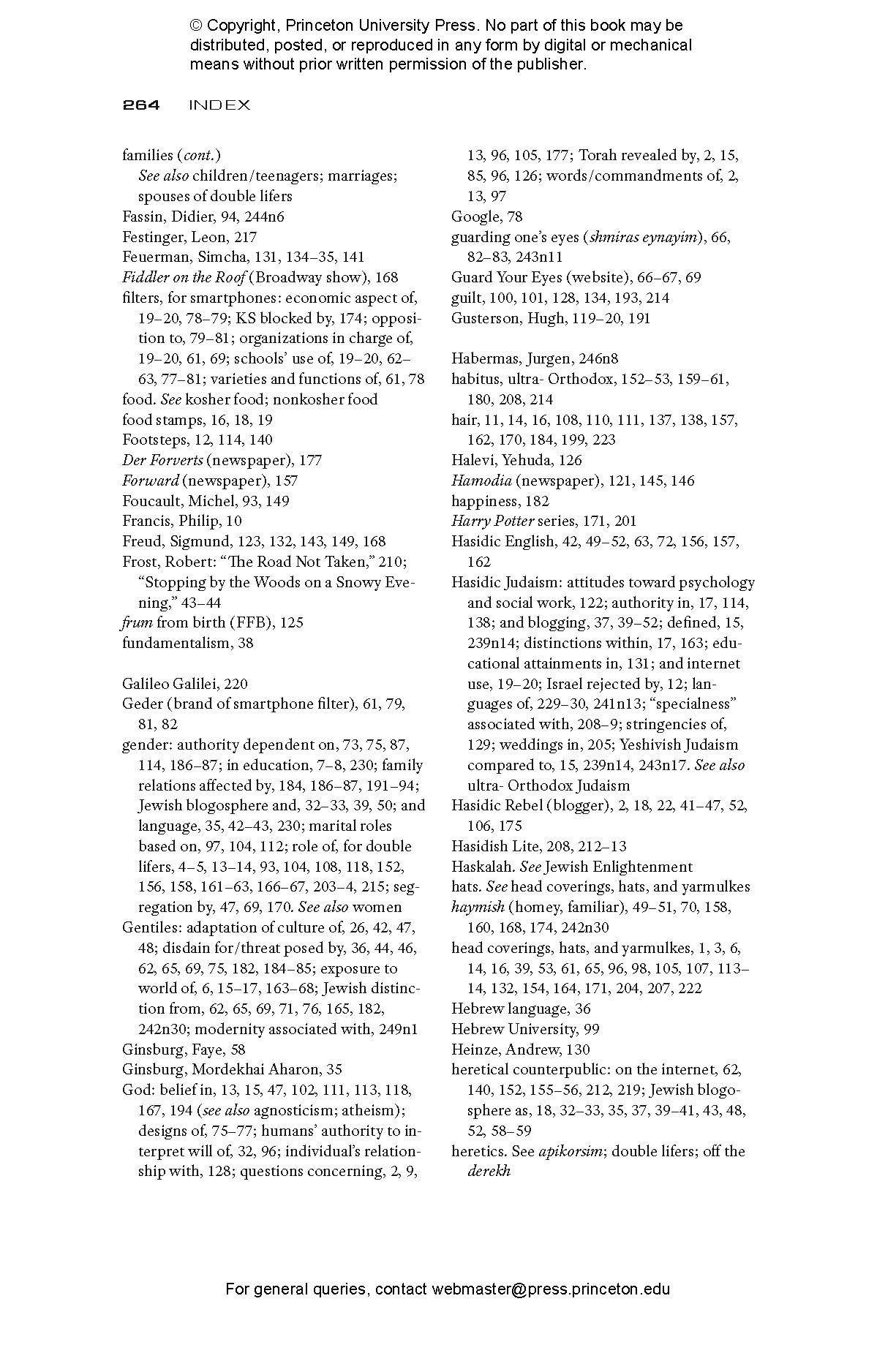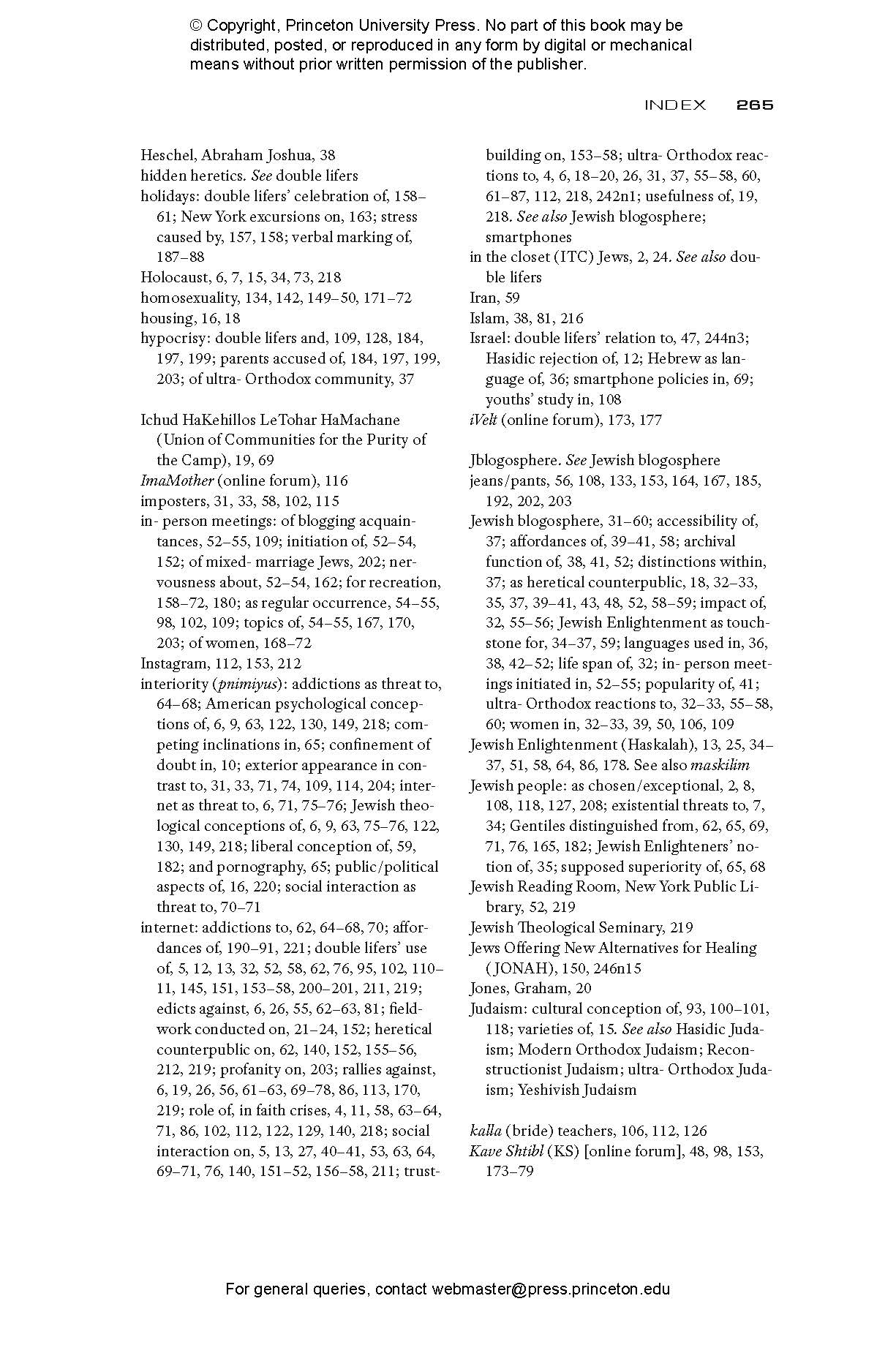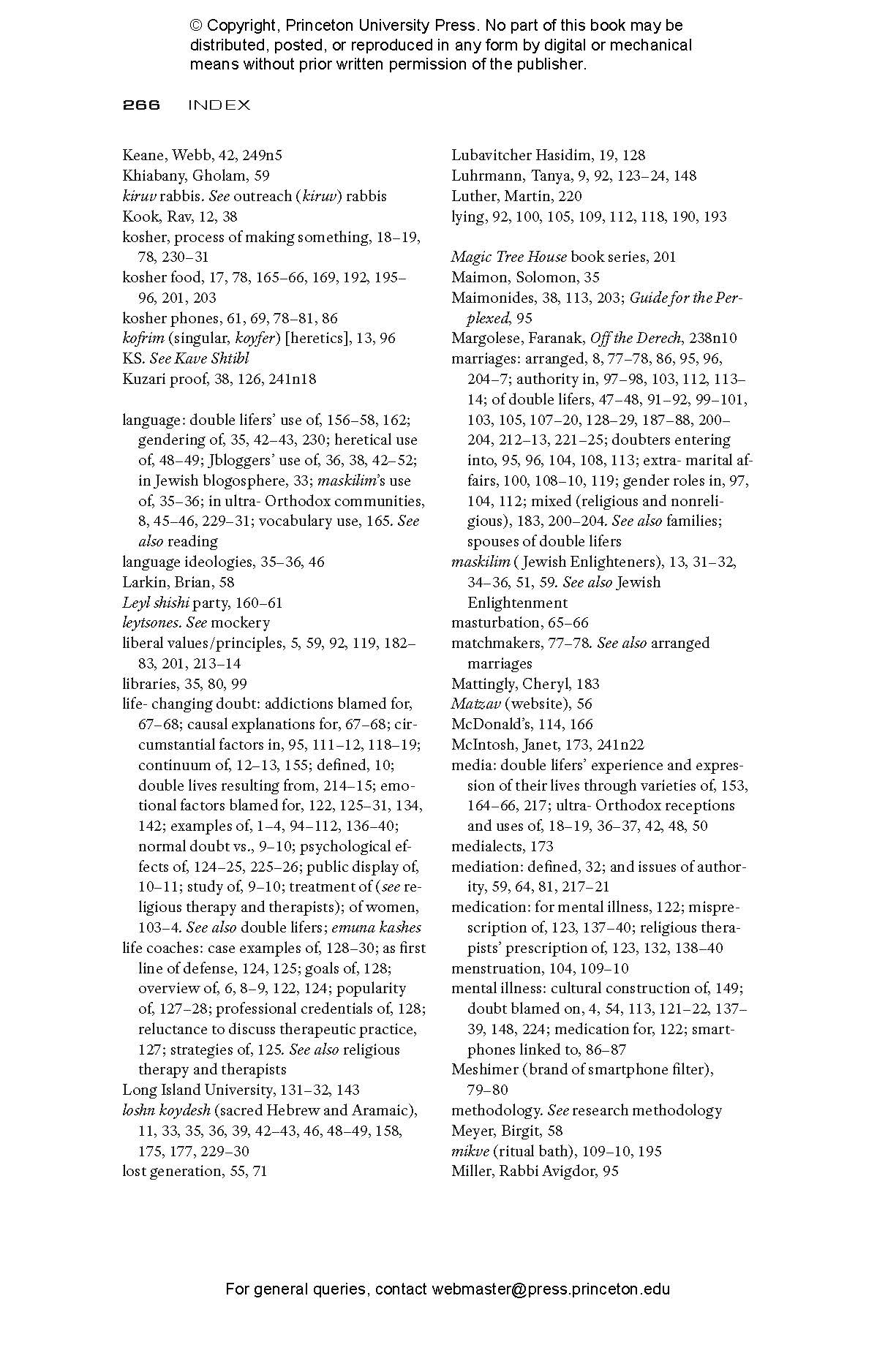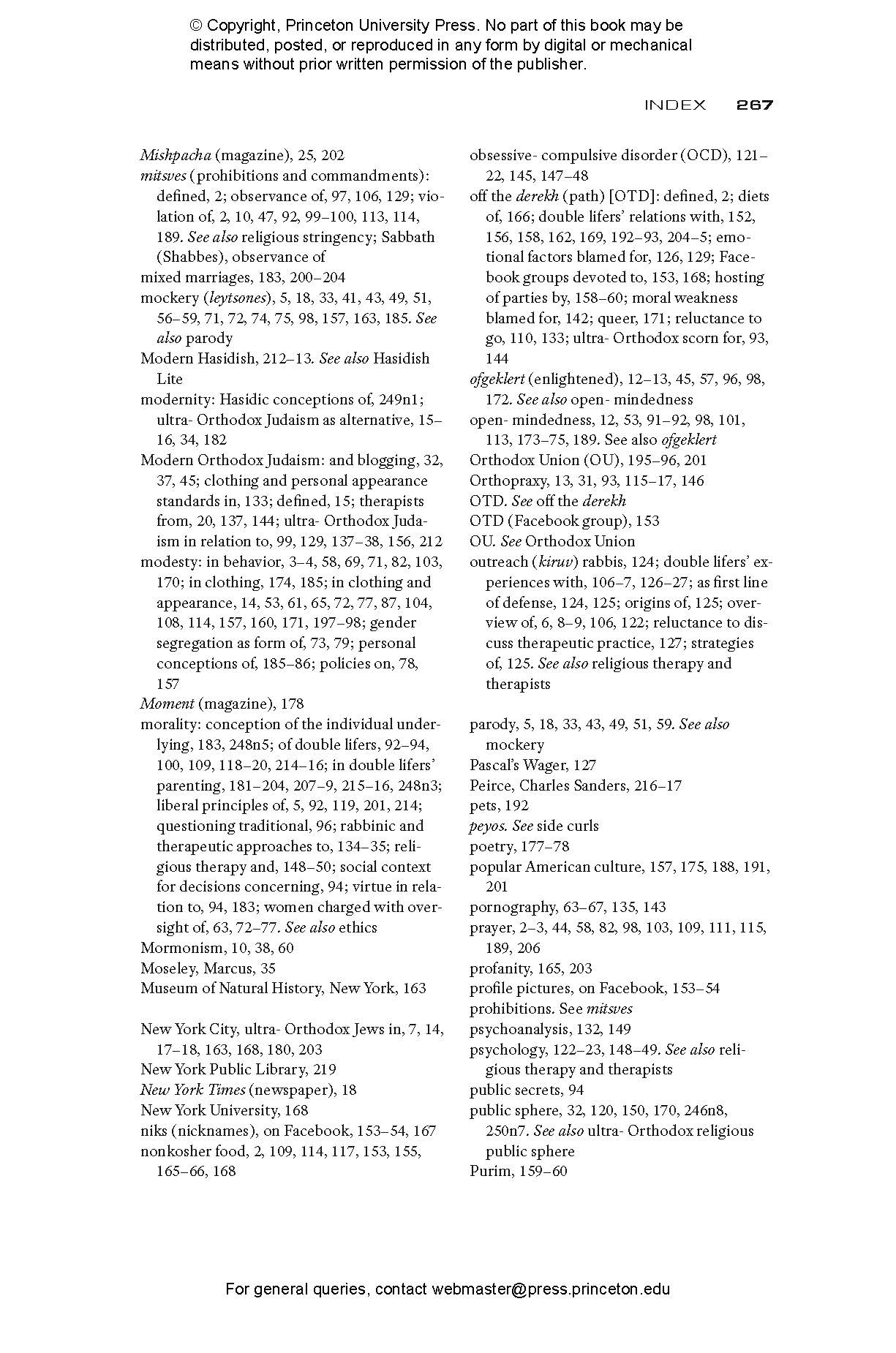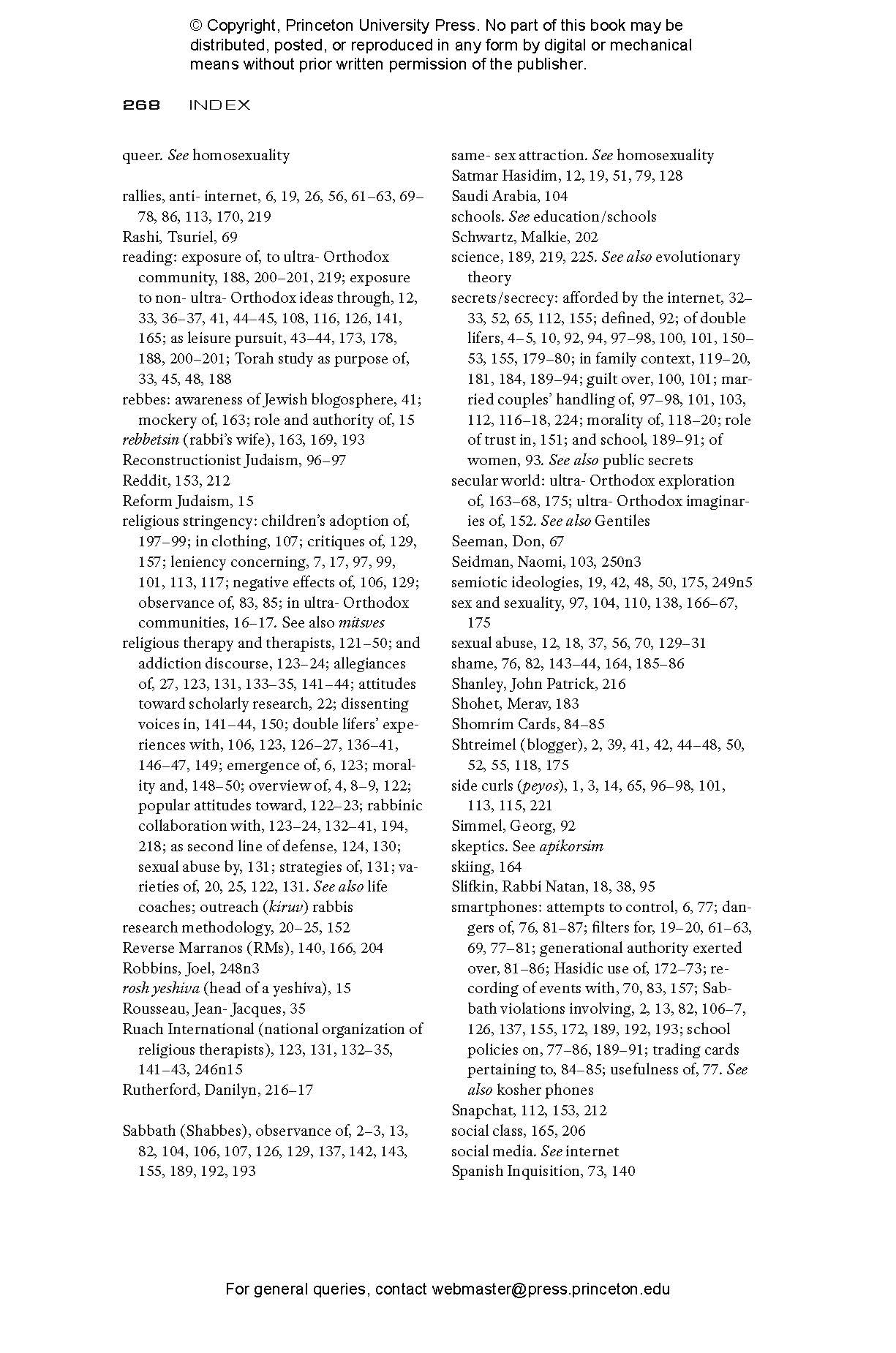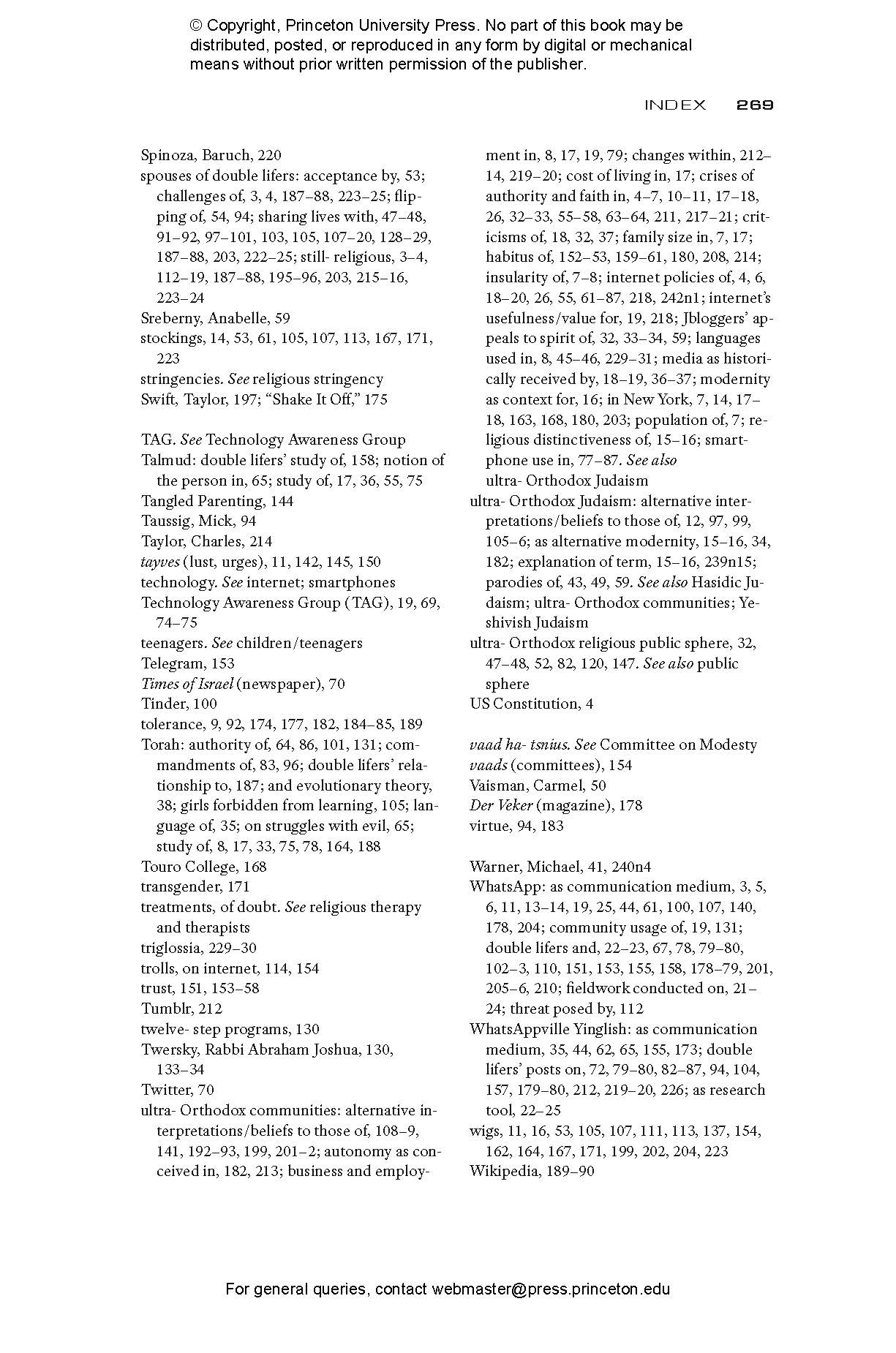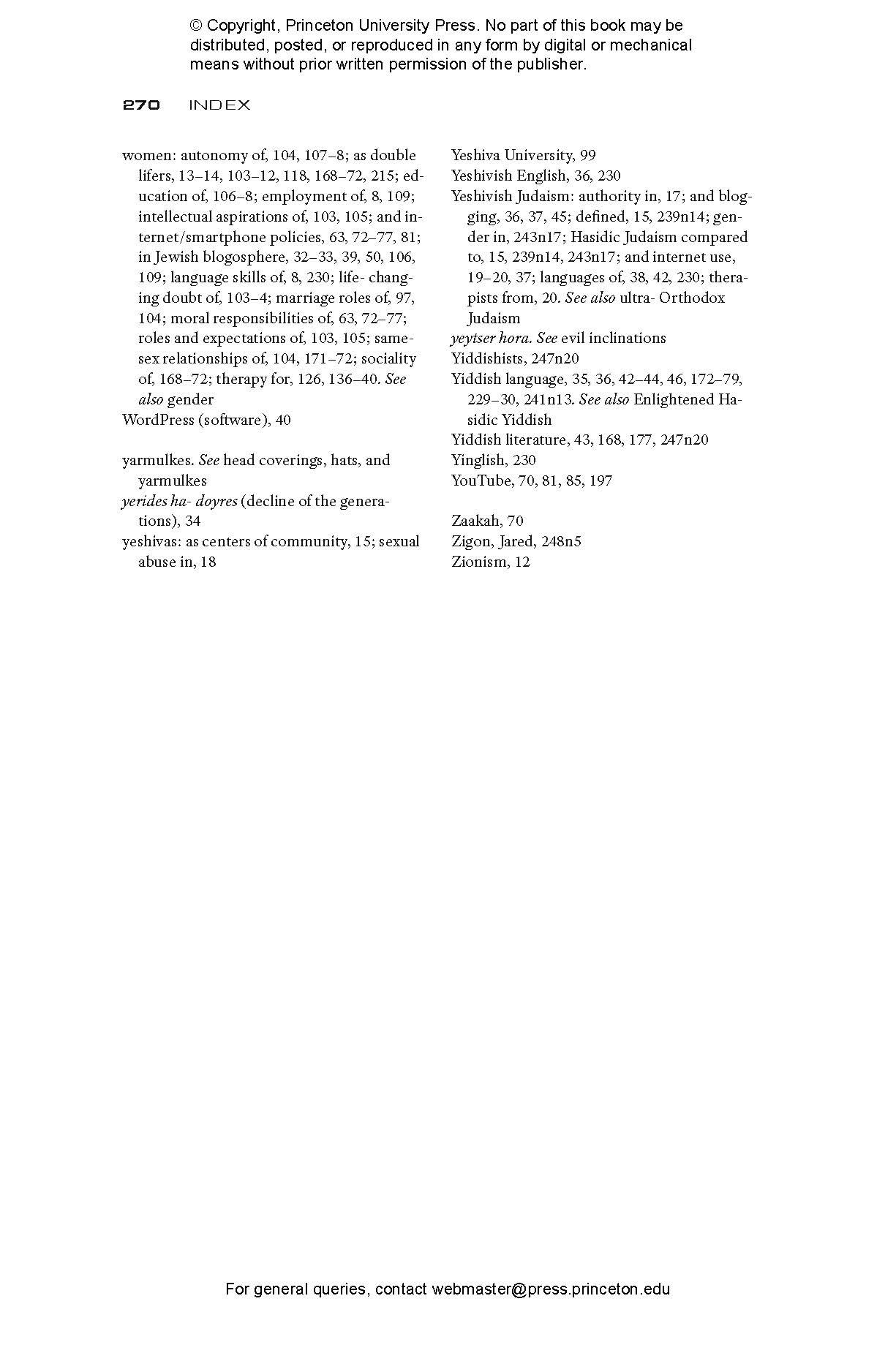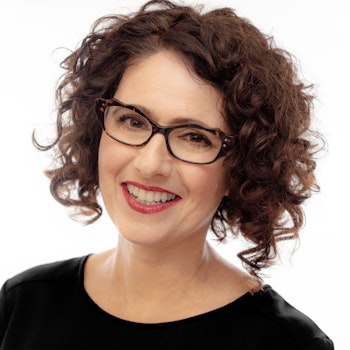What would you do if you questioned your religious faith, but revealing that would cause you to lose your family and the only way of life you had ever known? Hidden Heretics tells the fascinating, often heart-wrenching stories of married ultra-Orthodox Jewish men and women in twenty-first-century New York who lead “double lives” in order to protect those they love. While they no longer believe that God gave the Torah to Jews at Mount Sinai, these hidden heretics continue to live in their families and religious communities, even as they surreptitiously break Jewish commandments and explore forbidden secular worlds in person and online. Drawing on five years of fieldwork with those living double lives and the rabbis, life coaches, and religious therapists who minister to, advise, and sometimes excommunicate them, Ayala Fader investigates religious doubt and social change in the digital age.
The internet, which some ultra-Orthodox rabbis call more threatening than the Holocaust, offers new possibilities for the age-old problem of religious uncertainty. Fader shows how digital media has become a lightning rod for contemporary struggles over authority and truth. She reveals the stresses and strains that hidden heretics experience, including the difficulties their choices pose for their wives, husbands, children, and, sometimes, lovers. In following those living double lives, who range from the religiously observant but open-minded on one end to atheists on the other, Fader delves into universal quandaries of faith and skepticism, the ways digital media can change us, and family frictions that arise when a person radically transforms who they are and what they believe.
In stories of conflicts between faith and self-fulfillment, Hidden Heretics explores the moral compromises and divided loyalties of individuals facing life-altering crossroads.
Awards and Recognition
- Finalist for the National Jewish Book Award in American Jewish Studies
- Finalist for the Sami Rohr Prize for Jewish Literature, Jewish Book Council
- Finalist for the Jordan Schnitzer Award in Social Science, Anthropology, and Folklore, Association for Jewish Studies
"[An] absorbing account of how Haredi Jews in contemporary New York use social and other digital media to negotiate religious doubt. . . . It is the personal stories in particular that make Hidden Heretics so compelling."—Giulia Miller, Times Literary Supplement
"Engaging. . . . Fader effectively shows how modern apostasy meets hard-line orthodoxy."—Library Journal
"Providing us with a detailed examination of how disbelief occurs on a spectrum, Fader pushes us to understand how staying or leaving a religion does too."—Katie Christine Gaddini, Marginalia
"Hidden Heretics provides a view of contemporary ultra-Orthodox life from a series of unexpected angles and tucked-away corners."—Naomi Seidman, Public Books
"Fader has written a groundbreaking work that delves into the parts of the Orthodox world that many do not even know exist."—Ben Rothke, Times of Israel
"Substantial and riveting."—David Zvi Kalman, The Forward
"Ayala Fader . . . unpacks one of the most daunting public secrets confronting Haredi communities: the suspicion, or realistic understanding, that there are members of the community who are experiencing life-changing doubt."—American Anthropologist
"[Hidden Heretics] explores, with great insight and sensitivity, the complex existence of double lifers and the conditions under which they live. [Fader’s] engaging style makes this fascinating work appeal both to scholars of contemporary Orthodox Judaism and those who study the relationship between technology and society, as well as to the general reader."—American Jewish History
"Hidden Heretics does indeed reflect the best of anthropology: an incisive, sensitive book that draws novel ethnographic fieldwork together with scholarship on language and semiotic ideologies, secrecy, doubt, media, authority, and ethics."—Journal of Linguistic Anthropology
"Masterfully written"—Oren Golar, Journal of Religion, Media and Digital Culture
"Hidden Heretics offers an utterly compelling look at the way the digital age makes possible the emergence of social worlds in unexpected places. It is also a thoughtful account of the tension between religious belief and religious ethics and how they are intertwined and independent."—T. M. Luhrmann, author of When God Talks Back
"Compulsively readable, Hidden Heretics is a gem for scholars and general readers alike."—Shulem Deen, author of All Who Go Do Not Return
"By charting, in exquisite detail, the profound danger—and excitement—of life-changing religious doubt among the ultra-Orthodox in New York, Hidden Heretics demonstrates how contemporary digital technology has become the arena where the most urgent questions of religious modernity are being encountered, with renewed exigency and risk. This is necessary reading for anyone interested in religion today."—Robert A. Orsi, author of History and Presence
"There are a fairly substantial number of books about those who have defected from Hasidic communities, but this is by far the most insightful. It focuses not on those who have already left or are necessarily on their way out of these communities, but on those who remain embedded while wrestling with serious doubts. Hidden Heretics is an extraordinary accomplishment."—Jonathan Boyarin, Cornell University
"Fader has written a timely, daring, and important book on religious doubt in the digital age that illuminates the complex struggles of ultra-Orthodox double-lifers with sensitivity and insight. Hidden Heretics is fascinating and wonderful."—Janet McIntosh, Brandeis University
